






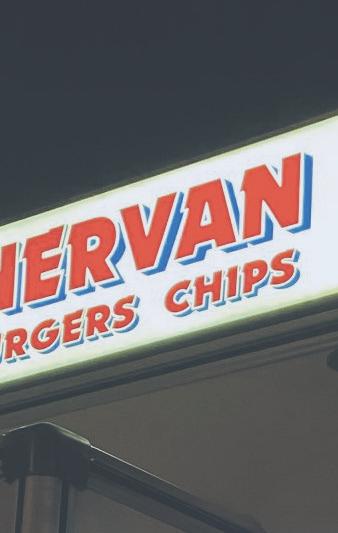




















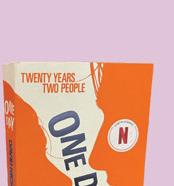

















Rosca








many students have asked but never had answered: ‘So, JJ, what’s your real name?’
Continue reading on Page 10





















































Amaan Ali Co-Editor-in-Chief
As we step into April, a month of renewal and transformation, it’s fitting to reflect on the evolving role of women in media and the persisting barriers they face. At Epigram this month, our Women in Media initiative took centre stage.
Women have long been at the forefront of storytelling, yet their contributions are often undervalued or overlooked. Despite making up nearly half of journalism and media students, they remain underrepresented in leadership roles across major media outlets. This imbalance not only limits career prospects but also restricts the stories that are told and the perspectives that are shared with the world.
Throughout the month-long Women in Media event, we have been hearing from female journalists and creators who are making waves in their fields and reshaping the industry from within. We have also examined the ways institutions must do better and how hiring policies, pay gaps, and ingrained biases still hinder progress. We even had the amazing opportunity to host our keynote




speaker Susanna Reid who was editor-in-chief of Epigram in 1990, to share her unique experience as one of the UK's most recognisable news presenters.
But our focus this month doesn’t stop at media representation. We also have been highlighting an urgent student issue: poor housing conditions. Our Break the Mould campaign which has reached over 500 signatures on Change.org is dedicated to tackling the widespread mould problem in student accommodation. Mould isn’t just an inconvenience; it’s a health hazard that can lead to respiratory issues, worsen asthma, and create unliveable conditions for students who are already facing greater financial and academic pressures than ever before. Too often, complaints go unheard and landlords or accommodation providers fail to take responsibility.
With Break the Mould, we are

Annie McNamee & Amaan Ali Co-Editors-in-Chief
pushing for real accountability. Students deserve safe, habitable housing, and it’s time landlords take decisive action. We encourage students to share their experiences, document the conditions, and demand change. By raising awareness and amplifying student voices, we can work towards tangible improvements in living conditions. If you want to share your story, please reach out to us on social media – we want to hear from you.
At Epigram, we want to use our platform to elevate the voices that need to be heard, whether in media or student housing. Change doesn’t happen in isolation. It requires a collective e ort, from demanding more inclusive content to holding institutions accountable for their failures.
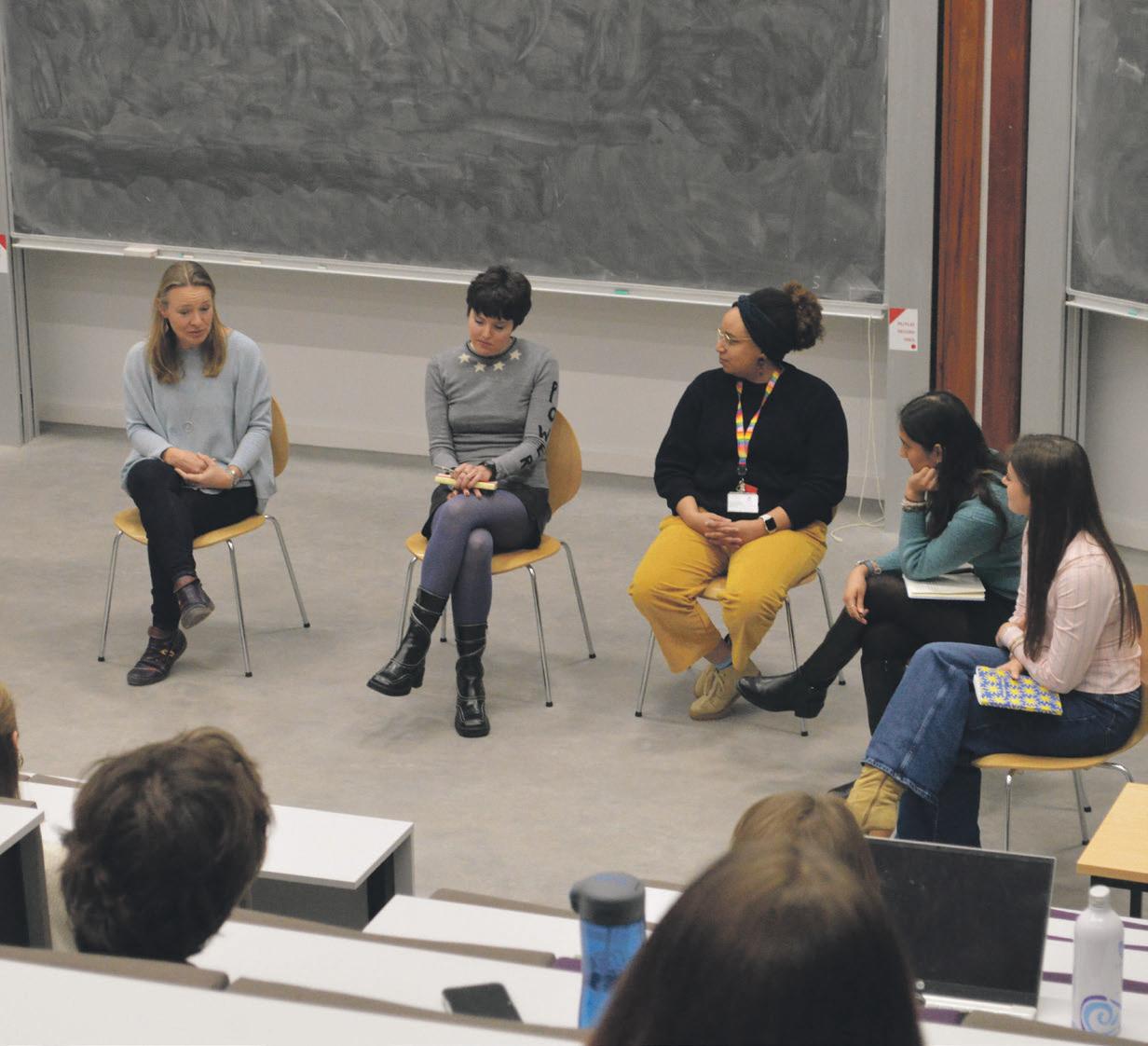


epigram.org.uk/get-involved/
Co-Editors-in-Chief: Annie McNamee & Amaan Ali
Deputy Editors: Sofia Webster & Will Standring
Chief Subeditor for this issue: James Lewis News
Co-Editors: Josie Hodgson & Maud Humphries
Co-Deputy Editors: Rhiannon Jenkins & Beatrice Learmouth
Investigations Editor: Will White & Sofia Lambis Subeditors: Otto Proctor & Cerys Larsen
Opinion
Editor: Karen Mends
Co-Deputy Editors: Alex Creighton & Hannah Moser Subeditors: Ellen Jones & Riana McConochie Features Editor: Nel Roden
Co-Deputy Editors: Jessica Cohen & Daisy Yates
Investigative Correspondent: Benedict Chester Subeditors: Reuben Kerbes & Ilona Ho man Arts
Editor: Bruno Bridger
Co-Deputy Editors: Elizabeth Abbott &












We've teamed up with Overhead at UoB to give you exclusive quotes across campus and beyond.








Follow them on Instagram: @overheardatu0b







"Surrey is actually quite deprived." "Deprived of what? Horses?"








"Woohoo submitted my assignment 48 mins before the deadline" "wow that's 47 mins more than last time"



"Can you get me the bergamot flavour snus, feeling citrusy today"





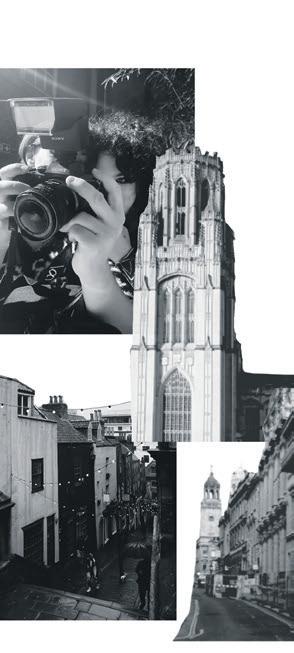





We are looking for photographers to contribute on an ad-hoc basis. Your role would consist of taking high-quality photographs that we can use both in print and online.

In order to apply, please email design.epigram@gmail.com with
1) Your name, course and year group

We are also looking for illustrators to create drawings and designs to a given brief.
In order to apply, please email design.epigram@gmail.com with
1) Your name, course and year group
2) A simple portfolio of your work or illustrate something for an existing Epigram article of your choosing
• Be the first to hear breaking news on campus and student analysis on a wide variety of issues at university and nationally.
• Take part in Epigraft, Epigram's blind date column, exclusive to the print!
• Keep up with our editorial team behind the scenes.
• See details of our socials, upcoming formals and distribution.



2) Two examples of your photography













From the housing crisis to carbon neutrality, find out what Bristol Central MP and co-leader of the Green Party Carla Denyer had to say during her recent visit to the University of Bristol.
Rachel Shortall
Second Year English & Philosophy
This month, Epigram participated in a Q&A session hosted by the Bristol Politics Society, where Carla Denyer addressed pressing student concerns about climate change and responded to a variety of questions related to her work and initiatives in this critical area.
The University of Bristol declared a climate emergency in 2019, and a 2021 survey conducted by Epigram found that over 70 percent of Bristol University students suffer from ‘climate anxiety’. Since then, concerns have continued to mount, with 2024 seeing the publication of an eye-opening UOB-led report linking climate change to physical health implications from joint pain to dementia, as well as being cited by the UK Met O ce as the fourth-warmest year since records began.
The need for a representative who gives the ever-developing climate catastrophe the priority it warrants has never been greater, so what has Bristol Central’s first ever Green Party MP been doing to address this issue since her July 2024 election?
becoming the world's first national parliament to declare a climate and ecological emergency in May 2019.
When asked if she retained her belief in the achievability of this fast-approaching target for carbon neutrality, Denyer conceded that, ‘too much time was lost for 2030 to now be possible’.
Despite declaring that Bristol City Council as a body is ‘quite a long way through its decarbonisation journey’, it has become plainly unattainable for the city of Bristol as a whole – as is the objective specified in the motion – to reach this target.
Denyer, in explanation of this, maintains that the delivery of this policy was ‘reliant on Labour’, with Bristol City Council having had a Labour mayor from the motion's passing in 2018 until the election of the Green Party's Tony Dyer in the re-established post of ‘leader of the council’ in 2024. Whilst the Labour Party did make some positive movement on climate-related matters, this, she professes, fell far short of being of ‘the scale that was needed’.
On the topic of this Climate Emergency motion, Denyer seized an opportunity to comment on the need for individuals and political bodies alike to show a willingness to pioneer change, as opposed to excusing themselves from the need to do so on the grounds of similar stagnancy being displayed elsewhere.
‘Being a climate leader’, she announced, ‘will encourage others to catch up’.
‘Being a climate leader will encourage others to catch up.’
In November 2018, Bristol City Council approved a motion, submitted by the then Councillor Carla Denyer, to have the mayor declare a climate emergency and pledge to make the city of Bristol carbon neutral by 2030. This initiated a kind of domino e ect by which many councils including London and Edinburgh, made similar declarations, culminating in the UK Parliament
Despite having received copious praise for the motion, she views much of its expansion as owing to it being made ‘too politically embarrassing’ for other councils not to follow suit in light of ‘a combination of people inside the corridors of power and outside pushing for change’. This combined force, she notes, is how most major campaigns come to fruition, and it is for this reason that she emphasises the Green Party’s recognition of the ‘importance of the right to protest as being an es-

sential part of a healthy democracy’.

Denyer also touched briefly on carbon colonialism, reinforcing her stance that the UK's carbon consumption ought to be included in the calculation of its overall carbon emissions, as opposed to this number representing only carbon production. This would mean that the nation could no longer get away with creating demand for and importing products from other countries, only to have the carbon output of such products added to the country of production’s overall emissions tally and absent from the UK’s. It is hoped that amending this calculation could lead to greater ecological integrity, a better strategy in addressing a worldwide issue than passing blame around as the global situation continues to worsen.
When questioned on the recent controversy surrounding the Green Party’s advocacy of fewer caesarean sections and call for an increase in natural births, Denyer was quick to clarify that this was ‘not in the manifesto’ of the party. Instead, she framed the incident as a ‘fairly manufactured controversy’ spearheaded by some individuals who ‘didn’t want the Greens to do well’ and were ‘quoting out of context’.
She contended that this ‘fairly out of date policy’ had been voted for in the early 2000s, and was the product of a time when the ‘overmedicalisation’ of the birthing process had seen a trend towards c-sections being o ered whether they were needed or not.
Despite subsequent information revealing that the delivery of frequent caesarean sections can, as Denyer put it, ‘help with women’s health more than was previously understood’, the policy remained in the Greens’ policy book – as do all policies the party has voted for in the absence of a motion being put forward to have them removed. Denyer then pressed that the ‘fundamental point is women’s right to choose the healthcare that suits them’, conceding that in light of the

she believes that the policy ‘has been or is going to be’ removed from the ultimate record.
When asked how she proposes to tackle the lack of media representation the Greens garner in comparison to Reform UK, a party who saw a similar number of MPs elected in the last election – five to the Green Party’s four – Denyer agreed that the amount of publicity attained by each is ‘disproportionate’. She remarked that Reform UK appear to be getting around the way that parliament ‘stifles smaller parties’ by essentially ‘abandoning the party political process’, noting that they are ‘rarely in the chamber’.
Despite noting wryly her frustration at Reform leader Nigel Farage’s party's priorities of ‘galivanting with Trump or doing social media videos’ instead of participating in parliamentary debate, she recognises that this is, at least in part, a way of responding to a structure in which their ability to make change by conventional means is limited. As such, she a rmed generally that she is ‘making an e ort to do more outwards-facing stu ’.
In terms of what she is working on presently, Denyer spoke of the private members bill she has put forward, describing it as ‘non-party political’ and ‘surely a no-brainer’.
At present, when an individual passes away after an interaction with the state - for example, after being discharged from prison or a mental health facility - an inquiry must be carried out with a report on how these circumstances can be learned from in order to prevent future deaths of the same kind.
Currently, the implementation of these measures is entirely in the hands of the institutions themselves and is not chased up from an outside source. This, says Denyer,
‘is not working’. Her call is for an independent body – a National Oversight Mechanism – to be established for this purpose, ensuring that changes are monitored and demanded. This body could ensure also that trends can be analysed such that problems with the system may be rectified both for the specific institution in question and on a wider policy-related level.
The bill is currently in the form of an early day motion – EDM 867 –and Denyer encourages students who believe in this policy to get in touch with their home MPs and encourage them to sign in support of the motion, as it has an outside chance of gaining governmental attention if enough MPs do so.
Finally, addressing how she intends to ameliorate Bristol’s housing crisis, Denyer recognised that merely ‘building homes… isn’t going to tackle the housing crisis’. Alongside this, there must be a focus on keeping the cost of these new developments down, as the issue is in fact more aptly characterised as a ‘housing a ordability crisis’. She calls for rent controls to be placed under the jurisdiction of local councils, giving them the power to keep rent increases from spiralling out of proportion in high-rent areas. This is something which she supported in her time as a councillor and has carried forward into her post as an MP.
The talk was closed with a final reminder for students to register to vote not only at their home address but likewise in Bristol in advance of the election of the West of England Metro Mayor coming up on 1 May 2025.
Updates such as these are crucial in analysing the path to the greener future on which we depend, as well as the performance of those passing the legislation which shapes it.



Co-Editors
Deputy Editor
News Investigations Subeditors
Maud Humphries, Josie Hodgson, & Will White
Bea Learmouth & Rhiannon Jenkins
Lambis
Otto Proctor & Cerys Larsen



Bristol awarded an impressive global ranking, but teaching scores lag

Harry Mayes MA Neuroscience behind
The University of Bristol has risen from the position of 91-100 held in 2023 to 78th place in The Times Higher Education (THE) World Reputation Rankings of 2025.
The survey ranked a total of 300 institutions across 38 di erent countries. Now in its 14th year, the survey has been refined to include six performance metrics, making it more robust than ever, according to THE. It has been refined to consider reputation in a wider context, with THE claiming that university reputations are ‘gaining a wider audience among the academic community’.
This year the University of Bristol has scored 78th place. Each of the six metrics that comprise this ranking is scored out of 100. Here’s how Bristol scored in each category:
‘It is wonderful to see Bristol making strides in THE’s highly regarded rankings.’ For context, Bristol scored 76th and 81st in 2023 and 2024, respectively. Regardless, it is a proud position to shine in by global standards.
The data seem to suggest that the rise in ranking from last year stems from the excellent international outlook and research quality, with the University of Bristol ranking first in the world for research quality in Medical and Health subjects, including medicine, dentistry and anatomy. Alluding to this, Prof Squires went on to say:
‘It is particularly pleasing that fellow academics are recognising our research and teaching as world-leading. We collaborate with universities across the globe and we are incredibly proud of those strong relationships. Thank you to everyone in our community – sta , students alumni and partners in Bristol and around the world – for making this possible.’
The University Deputy Vice-Chancellor, Prof Judith Squires said:
Bristol scored lowest in Business and Economics, with a global ranking range of 151-175th. This category also saw the worst ranking for teaching in the university, with a score of 34.5/100. Conversely, the best school at the University of Bristol for teaching was Medical and Health, with a score of 70.3, placing 54th in the global ranking.
Other proud rankings include Law at 60th globally, Physical Sciences at 63rd and Psychology at 65th. However, schools such as Life Sciences and Engineering ranked at 81st and 100th respectively, again with low metrics for teaching and research environment dragging them down.
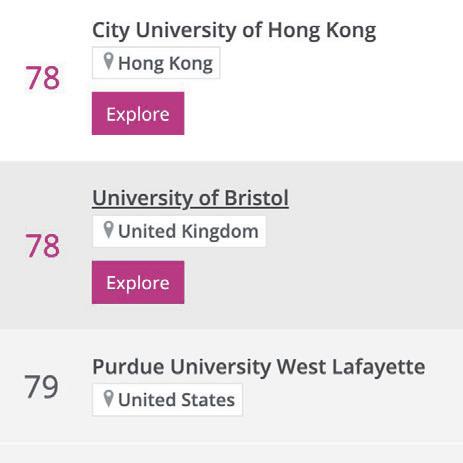
The data indicate that perhaps the quality of output by senior academics is excellent, but the environment and care for teaching their students require improvement at Bristol.
For specific subjects, the university ranked highest in Education studies, scoring 43rd in the world.

Bristol has also excelled in other global rankings. Bristol was named 54th in the QS World University Rankings 2025, ranking as the 12th most sustainable university in the world.
Four arrested after Palestine Action protest at weapons company Bristol
Oliver Poyser, Second year, Philosophy and Politics
March was a busy month for student politics, with the 2025 SU elections breaking all previous records for voter turnout. With seven new full-time o cers and a myriad of part time roles, who's represeting you?
Will White & Sofia Lambis News Co-Editor & News Investigation Editor
After a record-breaking month of preparation, campaigning, and voting, Bristol SU’s new team of full- and part-time officers were announced on Friday, 14 March.
With 9212 voters turning up to have their voice heard, the 2025 turnout has broken previous SU records and is a leader nationwide.
According to Students’ Union CEO, Ben Pilling, this year's proceedings spoke to a ‘real vibrancy around student democracy’ at Bristol.
‘[This turnout] means that student democracy at Bristol is thriving and does matter to people,’ said Pilling.
SU O cers are responsible for representing student voices within and beyond the university, and are a orded real power in their roles to fight for change across the institution. But who now holds the reins in Senate House?
‘Ludicrously tight and rather stressful’: University Challenge team win quarter final match
Leah Hoyle, Second year, English



From the reluctance to disclose allergies to flatmates to the devastating psychological toll of anaphylaxis, this piece sheds light on the hidden risks many young adults face. With raw honesty, Julia explores the consequences of complacency, the stigma surrounding allergies, and the urgent need for open conversations and better awareness.
Moving to university is daunting for anyone, but, as someone with a severe allergy, not being transparent with your flatmates could risk your life.
I went into anaphylactic shock in April of my first year of university. Somehow my closest friends at university had no idea I had an allergy, and the few who knew I carried an epi-pen didn’t know what I was allergic to. It was a pretty dire reality check for me.
Anaphylaxis is a life-threatening allergic reaction that progresses very quickly, potentially resulting in anaphylactic shock or in rare cases death. The UK has seen a drastic increase in anaphylaxis hospital admissions over the last twenty years, despite a fall in mortality rate. At 21 years old, I am in a very highrisk age group for managing my allergies, according to the charity
Anaphylaxis UK. I believe the reasons why fatalities are most prevalent in the sixteen to twenty-four age group are exacerbated by social pressures, so I want to share my experience managing, or at least attempting to manage, a severe allergy whilst at university.
‘Being open about health conditions isn't always easy.'
Being open about health conditions isn’t always easy. Especially not while navigating a new environment and desperately trying to make a good impression on your flatmates. As a child, your condition is most likely monitored by parents and your school. Moving to university forces you to be responsible for managing your

allergy alone and educating the people you live with. Restricting what is allowed in the kitchen, asking flatmates to check ingredient labels, and vigilance about possible cross-contamination are essential to keeping me safe. Despite this, I was reluctant to impose on my flatmates and could never seem to find the right time to bring it up.
Months later, I was having dinner on a summers evening with friends. I knew immediately that something was wrong. But without knowing how severe it would be I didn’t want to alarm anyone.
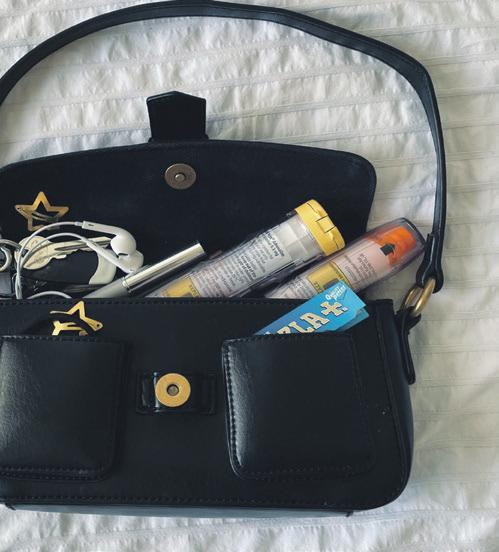
Once I eventually spoke, my friends sprinted into the kitchen, scrambling to read ingredients. Having spent years at school together they knew exactly what to look for.
The conviction and speed with which they acted was remarkable. They rang 111, 999, knocked on neighbours’ doors and contacted my parents – thankfully ignoring my protesting. Unfortunately, the Epi-pens I should have been carrying had been forgotten in the bottom of a bag somewhere at home. By the time I sincerely thought I could die (also a symptom of anaphylaxis), paramedics were at the door.
I don’t remember much of it, I know there was a lot of throwing up involved. When I couldn’t see or hold up my head any longer I curled myself up on the floor, thinking about dying and breathing. There was a moment in the ambulance where my whole body was shaking from multiple ad-

ministrations of adrenaline that it looked like my legs, stretched out on the bed, were trying to walk away without me. I was hooked up to all the things: needles, wires and masks, along with a constant murmuring of paramedics speaking in their acronyms. My friends stayed by my side for as long as they could and returned for visiting hours the next day. Much of the night spent alone was filled with phone calls from family trying to cheer me up and posting Lana del Ray’s ‘Born To Die’ on my Instagram story.
After having my hospital stay extended multiple times, someone pressed a prescription into my hands and I was suddenly discharged. Having arrived by ambulance, I got halfway down the corridor before realising I had no idea where I was. Exhausted and in tears I left the hospital alone.
It’s no secret the impact anaphylaxis has on the quality of life and mental health of patients. Patients with anaphylaxis are more likely to have PTSD and associated psychological distresses, like anxiety and depression. Conditions involving strict dietary adherence have also been associated with an increased risk of a broad range of disordered eating behaviours. Over half of people living with allergies in the UK regularly avoid social situations due to their allergies and also feel they should minimise the extent of their allergies to the people around them, fearing judgement. This psychological impact is pressing because stress can intensify the symptoms of allergies, and reactions are likely to be more severe after your first experience of anaphylactic shock.
Six months after my stay in hospital, I was alone in a hospital waiting room for an unrelated routine




For students with severe allergies, the transition to university isn’t just about independence, it’s about survival. In this gripping personal account, Julia Mullins reflects on a severe anaphylactic reaction and the challenges of managing the condition while navigating life at university.





appointment and completely broke down. It was the first time I had been forced to confront the experience I had gone through, and my own reaction shocked me.

‘The constant fear of anaphylaxis makes me vigilant about noticing the onset of symptoms, but this paranoia can also feel like an overreaction’
It was made resoundingly clear to me by everyone that I should’ve had my epi pens with me. Two. At all times. Though I had been prescribed epi pens, I had never used one before, and for a few years had been particularly lucky - so I got complacent. I truly didn’t think anything would happen to me. Those between the ages of sixteen and twenty-four are likely to resist carrying adrenaline auto-injectors (commonly known by the brand name as Epi-Pens) and take greater risks experimenting with foods they are allergic to. Add to that the likelihood that any self-respecting uni student will be doing their fair share of drinking, so say goodbye to risk perception.
But this isn’t surprising, teenagers and young adults commonly present non-compliance to self-care behaviours, like carrying vital medication. An epi-pen isn’t the kind of drug you want to be sneaking into a night club.
I felt deeply that I was to blame for the whole ordeal, which in part I was. Shame and reluctance when managing a severe allergy, is a real risk. For flatmates and friends, supporting someone with a severe allergy goes beyond dramatized emergency scenarios, make sure to leave room for honest dialogue too.
And for those who are wondering, the culprit was buckwheat.
For any further information, I have listed some resources and charities on the Epigram webiste.
Editor
Deputy Editor
Deputy Editor
Subeditor
Subeditor
Mends
Creighton
Moser
McConochie
Jones

A Politics degree may not promise job security, but it does guarantee sharp debates, conversation starters, and enough mystery to keep life interesting.
Hannah Moser Opinion Deputy Editor
For a long time, I was the favourite grandchild. Not because I was the sweetest or most adorable (though both those facts remain true), but because I wanted to be a vet (or a doctor), and my brother had brought shame on the family name for choosing to study something as useless as Politics. What you won’t know from my by-line
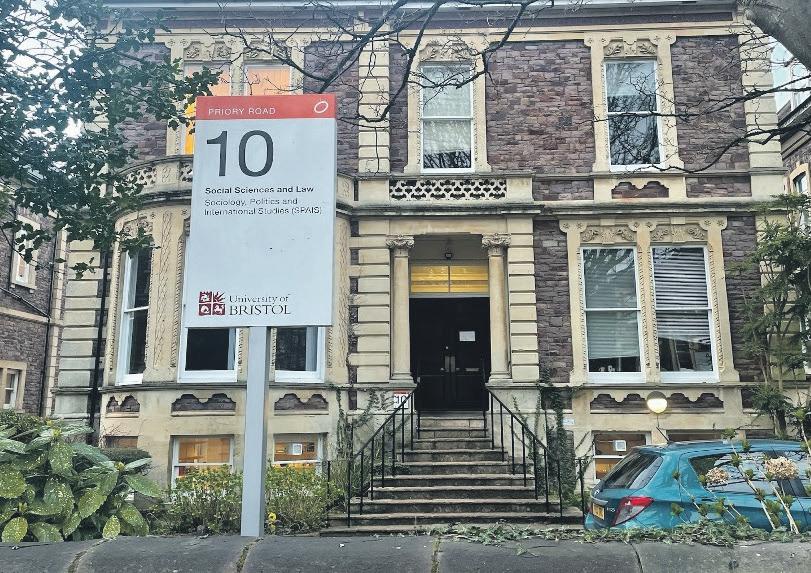
is that I’m actually now in my third year, also studying Politics.
My Opa’s dreams were shattered a week before the UCAS deadline when I shared I had done a last-minute U-turn to ‘follow my passions’. During freshers I had the reoccurring thought that maybe I had made a mistake, perhaps I was meant to stay on the previously prescribed (ha, doctor pun) path. Now, almost three years later, it is abundantly clear to me that choosing to study my ‘Mickey Mouse’ degree was the best choice I could have made. With the clarity of hindsight, I now endeavour to prove why my degree is, in fact, worth it.
I’ll keep it brief on these benefits as, though perhaps most pertinent to the worth of my degree, they are comparatively boring. Studying Politics does, despite my Opa’s objections, look great on a CV. It tells an employer I can hold my own, make compelling ar-
guments and, when in dire straits, bullshit my way to success for the greater good of the company. The other practical benefit of course is political literacy, an important quality for any decent citizen. Worth it, I say!
‘this degree does help you develop a plethora of transferable skills which are valued in any sector.’
I am yet to reap any of the employability benefits of my degree. Regardless, my Politics degree really does come in clutch in a variety of other scenarios.
‘there is no greater time to be studying Politics than in a time of geopolitical crisis!’
Firstly, family gatherings - never a lull in dinner time conversation when I’m seated next to my uncle, who thinks I’m a freak of female nature for my interest in football. Secondly, any discussion of the economy; let’s just say the finance bros hate to see me coming. Finally, any interaction with a man born before 1940, I’ve learnt these golden oldies do love a riveting conversation about either
of the World Wars. Shoutout to my second year ‘Understanding Genocide’ module for providing me with hours of material with which I can occupy pensioners - that alone makes my degree worth it.
Certainly, most importantly, studying Politics is mysterious. Why does this make my degree worth it you may ask? Well, it gives me a bit of character. Something unique which inevitably becomes a qualifying feature of my identity for anyone I encounter. When learning what I study, people give me the classic confused look, it is evident that they have no idea what on earth that may entail. This fact does not bother me, I am quite content remaining an intellectual enigma. To most, I am a wannabe PM. Dearest reader, let me reassure you that you are at no threat of me becoming the future leader of Britain.
So maybe, I don’t have the most
Feminism Week: a brief, box-ticking detour before academia gets back to business as usual.
Eleanor Turney
Third Year, Politics and International Relations
The token Feminism week, that special time in the academic calendar when lecturers suddenly pause for a quick, painfully surface level reflection on gender issues. You all know the drill – it hits weeks four to six in the teaching block and suddenly we make a pitstop at gendered issues and female authors of the topic at hand. We then swiftly get back on track to the scheduled weeks of learning, underpinned by masculine assumptions and scholars because God forbid Feminism becomes more
than a trendy tick-box exercise.
To be fair, some modules and lecturers do try - shout out to my Gender and Security unit. Yet, more often than not, it feels as if Feminism is an add-on rather than a core issue and framework of society. Not only does it keep happening, but every time it’s the same story. No matter the subject, we learn that women are underrepresented and more vulnerable in almost every walk of life. We talk about how terrible it is, how it’s so neglected and we should really do more to combat it. Yet, universities just reinforce the issue by not increasing their representation and recognition of gender studies throughout modules. Instead of doing something like integrating
feminism and female scholars into all syllabuses (crazy idea, I know), our units continue to do this quick, shallow reflection before heading back to scheduled programming.
‘You'd think as a politics girlie my course would be better than others at this, but I can confirm for the last three years that the token week has come up in nearly all my modules’
This issue became clearer to me when I recently presented my dissertation topic which critiques Women Peace and Security Agenda for not actually being as progressive as people think. As I stood there explaining my research, I noticed all the sta members were men.
Now, I’m not saying that this meant they had less knowledge on gendered issues – but they did. While I genuinely appreciate their comments that my work is ‘really insightful’ or had ‘lots of original contribution to the field’, I was shocked
that a fundamental feminist critique was some innovative idea to them. It showed that these topics are still so marginalised that even the most basic feminist analysis appears to be ground-breaking academia (although, I’m sure my dissertation is in fact ground-breaking).
So, what’s to be done? Feminism shouldn’t be a standalone topic, it should be woven into the curriculum, present in every discussion. But until then, I’ll see you next time for another exciting and innovative showcase of ‘Oh look, women are oppressed in this module too!’

By Mihai Rosca Sports Subeditor
For April’s Editor’s Choice, I bring to you our Sports Subeditor’s interview with the guys from Bristol’s favourite kebab van: Jason Donervan! Mihai speaks with JJ about the inspiring journey of a migrant who lifted his family out of poverty through hard work and set a powerful example for his son. Mihai and JJ cover everything from the origin story of the business, to the importance of hard work, to JJ's go-to kebab van order. I’ve selected this piece not only because it o ers a glimpse into the much-speculated-about world of Jason Donervan, but also because it tells a wonderful story of a family-run Bristol venture — you love to see it.

Continued from front page: 'All you guys need to know is that it’s just Jason Junior. You don’t need to know anymore’, choosing to keep his name private ‘so people can assume.’ It seems that JJ is aware of the mystique surrounding Jason Donervan’s image and is more than willing to keep playing along to keep up the fun.
Despite this, he admits that students could probably find out if they searched hard enough. ‘Two students actually found who I was’, he notes, ‘They found my Instagram and I was genuinely surprised –how the hell did they find me!’ Onto matters of the business, JJ tells me that it has been around for over 25 years, since Millenium Night, 1999. He says that as soon as the council permitted him to use the space, Jason chose to open on the Millenium Night, finishing his first shift in the famous van in the year 2000. Just getting the van there took an hour; JJ tells of the ‘thousands of people’ on the street celebrating.
In discussing why Mustafa Durdu –Jason’s real name – chose to name his van after Jason Donovan, JJ notes: ‘Imagine a UK Jamie Foxx: a singer, an actor, he does TV series, at that time he was massive.’ The name also made sense because Mustafa’s
nickname was, and still is, Jason.
Jason Donervan benefits from having one of the best locations in Bristol, located on Queens Road, just a few minutes away from the U1 bus stop. ‘If only you guys knew how much trouble it was [to get that spot] [...] It took a lot of pleading [to the council]’ JJ reminisced.
Back then, Bristol was still developing and Jason noticed that there were no late-night kebab shops or takeaways in the Park Street, Triangle or Whiteladies Road area. So, when Jason came to Bristol he recognised what was soon-to-be their current spot as ‘special’, not only because it was conveniently situated in a student-heavy area, but because Jason saw that there was a growing market for latenight food which he’d soon be able to capitalise on. And he was right.
The whole team evidently work incredibly hard. JJ even says he ‘likes to work.’ Most weeks he works six days, starting at six pm and finishing at six am. His father only works 2-3 days a week, being 56 years old and now having a young son depending on him. His other colleagues work five or six days.
Discussing his family’s background, JJ remarks: ‘We're from a poor fami-
ly.’ His father had eight siblings and, as JJ notes, ‘thought, the best thing for [him] to do is not to save [himself] but to save [his] family’s life.’ So, Mustafa saved his money and moved to the UK. When JJ’s dad arrived in the UK as an 18-year-old, he worked in a kebab shop in Tottenham. He then travelled to di erent cities, gained experience, saved money and opened up various businesses. All this while not knowing the system or the language.
Quite naturally, they all work hard because they’re ‘scared of going back into that state.’ JJ continued: ‘I don’t want him to work hard anymore’, which tells me that JJ appreciates his father’s e orts and feels he now must step up and provide for his parents in their old age.
tomer first. JJ prides himself on the fact that he will advise customers on making the best decision –even if they pay less. He was once a student too, so he knows what it’s like for the budget to be tight.
Wanting to get back to his roots and ‘understand the culture’, he went to Turkey after finishing college in the UK. There, he laughingly says, he spent his time as a ‘stereotypical Turkish guy doing barbering and kebab.’
‘I think he’s a really smart man. His mind works di erently’
Though he admits that even if he worked 24/7, Jason would continue work because ‘he’s a workaholic.’
‘It’d be disrespectful to just be complacent, I have to work hard’, JJ notes, ‘He sacrificed his youth for mine, so I’m gonna sacrifice mine for his.’ The business is their pride and joy, it represents their family: ‘I’m so against that [not wanting to work in the family business]. Who else is going to cater [for] you when times are tough, right? It’s all about family […] I came from a loving family.’
I begin to wonder who the other team members are. ‘They’re all family’, JJ tells me. He speaks particularly warmly of Mr Kj and Mr Ramsey, whom he calls ‘the pride’ and ‘the joy’ of the van.
Their love for this business, with family at the centre, is undoubtedly the reason for their customer’s loyalty and satisfaction: ‘I think that’s why the students love us.’ They have the crucial philosophy of putting the cus-
The business is 100 percent his father’s. JJ says that people underestimate his old man because he sells kebabs. ‘I think he’s a really smart man. His mind works di erently’, JJ observes before using a common Turkish phrase to suggest that it’s as if his father ‘has two engines in his brain.’
Mentioning that the kebab van has also become famous for supporting the vulnerable on a night out, JJ replies, ‘If it was my child I’d want someone to do that for
supported people by calling an ambulance or returning their lost property: ‘He [Mustafa] sees all of you like children, he’s like a godfather, he always reminds us to be “very respectful.”’
Discussing what it’s like to work at Jason Donervan, JJ excitedly remarks, ‘It’s fun!’ Though all jobs have their challenges, JJ enjoys the perks of working in the van, talking to new people and learning things from students.
Rounding o our conversation, it was necessary to ask JJ the question on everyone’s mind: What’s your kebab shop go-to? Almost immediately, he responds: ‘Oh personally, I got two! I love a kebab pizza – I’m a slut for that [...] And I like uhh.. small doner kebab.’
Showcasing the best of Bristol one kebab at a time, may this wholesome family-run venture remain a staple for students and members of the Bristol community for years to come!
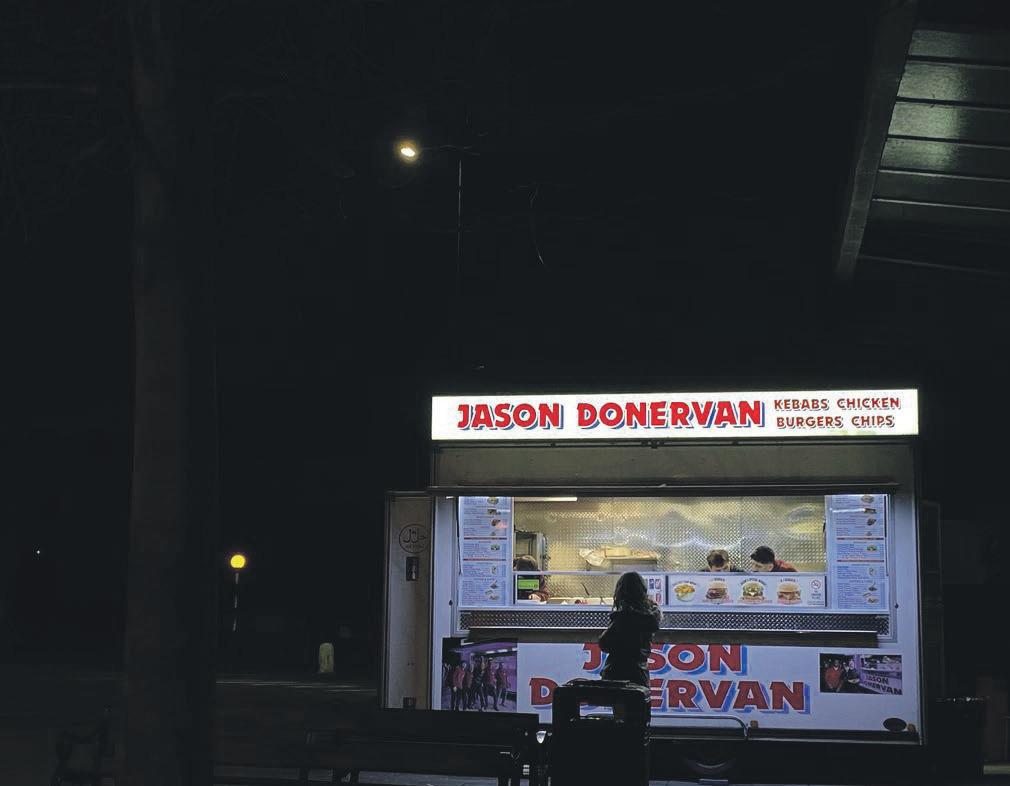
Editor
Deputy Editor
Deputy Editor
Subeditor
Subeditor
Nel Roden
Jess Cohen
Daisy Yates
Ilona Ho mann
Reuben Kerbes

Ilona Ho mann delves into why students are considering social media as a vocation
Ho mann Features Subeditor
Is social media influence becoming the new bachelor’s degree? University applicants among 18-year-olds dropped from 38.2 percent in 2021 to 36.4 percent in 2024, which coincided with the influencer industry reaching a height of £16.8 billion. Over 50 million young people around the world consider themselves to be influencers or creators, with Gen Z embracing the internet economy as a more flexible path to financial success and personal fulfilment. With rising burnout, low wages, and overwhelming student debt, the traditional university path is losing its appeal.
A staggering 74 percent of students
feel so stressed that they have been too overwhelmed to cope with the university environment. Epigram spoke to fourth-year BioChemistry student, Jana, who stated that ‘stress is inevitable when you want to do well, however, this stress builds year on year and by fourth year the workload turnaround is very overwhelming.’ She expressed that these feelings were shared by her cohort and that there have been many times that the workload has felt ‘unmanageable.’
Universityhasalwaysbeenastressfulenvironment with long hours of studying and continuous assessments. However, pairing the stress with skyrocketing student debt is a relatively recent emergence. In 1998, student fees were introduced to the UK higher education system. Now, in 2025 only 5.8 pe cent of student loan balances have been paid o , making the idea of a debt-free life unimaginable for most students.
Interestingly, with the rise of entrepreneurship and education moving
online during the COVID-19 pandemic, Gen Z has become 17 percent more likely to apply for remote work than previous generations. Young people today enjoy the flexibility and comfort that comes with working from home and being your own boss.
Eve, a fourth-year Law student, told Epigram that students these days ‘appreciate the hybrid lifestyle where they can better manage home life, hobbies and lifestyle choices without compromising on their career opportunities.’
With wide access to social media content, Gen Z is seeing young influencers achieve financial independence and fame without a degree, reinforcing the idea that success in the digital age doesn’t require traditional education. In fact, 64 percent of Gen Z are prioritising working from any location they choose, with 62 percent wanting to pursue work they find meaningful and contributing to their life experience.
Influencers can make a living from
anywhere around the world at the tips of their fingers, which allows them to travel and prioritise hobbies and lifestyles they would be unable to do in a traditional nine to five job that university degrees encourage. Gen Z prioritises gaining diverse experiences over climbing the traditional corporate ladder. They focus on developing transferable skills and seek roles that o er learning opportunities, adaptability, travel and
exploration across multiple fields.
Pia, a fourth-year Chemistry student, agreed with Eve, telling Epigram the key reason behind her generation's need for flexibility: ‘My school year was really impacted by COVID-19...
For the full article go to: epigram.org.uk

their experiences at an English university? How do Welsh students maintain pride in their identity and heritage whilst immersing themselves in a new city and cultural environment outside of Wales?
The shared patriotism uniting Bristol’s Welsh students is undeniably igniting important questions: How are students embracing traditional Welsh culture to supplement
Epigram sat down with members of the Welsh student community and connected with Bristol’s Welsh society, CymGym, to gain a unique insight into what to expect as a Welsh student at Bristol. Recent statistics reveal that of all full-time undergraduate students

from Wales, 41 percent study in England. Additionally, only 36 percent of full-time Welsh postgraduate students study in England. This disproportion suggests that there are deterrents discouraging Welsh students from moving to England for higher education, with speculation that this is due to cultural di erences, or a lack of awareness of course availability and financial support on o er to them.
Epigram spoke to the Welsh society’s Social Secretary, second-year Law and French student, Eluned Darwin Goss, to gain an insight into the Welsh student experience at Bristol. When asked what Welsh students can expect when coming to an English university, Eluned said: ‘I think Welsh students need to expect a much larger percentage of English high household income students due to the student finance system. I have felt that there are a lot of English people at university who are unaware of their privilege because they are lucky enough to have families who can a ord to pay for their university fees.’ Eluned went on to tell Epigram: ‘As Social Sec of CymGym, keeping Welsh language and culture alive is incredibly important to me and
I’d say that all of the committee members share the same values.’
Bristol’s proud Welsh society is a key contributor in creating a sense of community for Welsh students. The society organises an extensive programme of inclusive events and socials throughout the academic year to foster a sense of togetherness for Welsh students at Bristol. Themes are set, and students are encouraged to come along and enjoy the company of fellow Welsh students who share similar patriotic feelings for their home nation at regularly held socials. ‘There’s nothing like singing Hen Wlad fy Nhadau in a rugby shirt with your Welsh mates’, Eluned proudly added.
Epigram also spoke with some of Bristol’s wider Welsh community. When asked what aspects of Welsh culture they miss whilst studying in England, the students shared similar perspectives. Ben, a second-year Maths student, noted that ‘the culture in Wales has a sense of togetherness, England feels quite divided whereas Wales is very united as a whole.’ Cerys, a first-year History student, agreed, telling Epigram: ‘I miss the overall sense of shared patriotism and living in a country I love and feel proud of, and the
friendliness of the Welsh. Everyone always stops on the street to have a chat whether you have met them before or not. I find Wales far more of a friendly and positive place!’
However, Cerys also shed a more positive light on her experience as a Welsh student at Bristol. When asked about the similarities between living in Wales and moving to Bristol, she expressed her appreciation that ‘both Bristol and Wales have lovely green spaces, beautiful buildings, lovely people, and fun activities to do around every corner.’
CymGym encourages students to exercise the Welsh language wherever possible whilst at Bristol, with the society’s Welsh language coordinator, Owen, setting up a language workshop at the global lounge every couple of weeks. This session is open to all, not just those who speak Welsh or students from Wales – anyone interested in learning Welsh is welcome.
Welsh culture is very much alive at the University of Bristol, with countless opportunities to embrace the heritage of Wales and celebrate the nation’s Celtic language available for those who wish to participate.

Hannah Stainbank investigates the various issues surrounding the University of Bristol's Check-In App
Hannah Stainbank
Second-year, English
Following technical issues last term, the controversial University of Bristol Check-In App is up and running again. The app’s primary aim is to monitor students’ attendance and wellbeing, but how do students and sta feel about this monitoring? And how has the app fared since it was introduced? Between the boycott, privacy concerns, threats to student visas, and day-today issues with functionality, it has been somewhat of a bumpy ride.
The Check-In App began as a way to standardise attendance monitoring across the university, where previously it had varied across departments. This change occurred soon after stricter regulations for visa sponsors – i.e. the university – came into full e ect, specifically for closer monitoring of international student attendance.
Though these regulations changed in late 2020, the initial testing of the Check-In App began in September 2023 after in-person teaching was back in full swing.
The first of these issues was the boycott. In an Instagram post on the 5th of March 2024, Student Action Bristol called for a boycott of the Check-In App as it was ‘another example of uni complicity with apartheid and the genocide of Palestinian people.’ The group cites the reason for their encouragement of non-use as being due to the fact that the app was ‘developed by an Israeli company (Ex-Libris)’. They also condemned it as ‘an ableist form of surveillance’ and a ‘threat to our [students’] privacy.’
ny that meets these two conditions.’
They focus on targeting ‘a relatively smaller number of carefully selected companies’ that ‘play a clear and direct role in Israel’s crimes against Palestinians.’ The BDS movement does not list Ex-Libris as one of their targeted companies, but supports grassroots and student-led campaigns generally.
‘the app has posed a number of challenges.'
Aside from the BDS movement, some students feel a sense of distrust for a third-party company having access to their live locations.
Since this initial call to boycott, four groups (Student Action Bristol, Extinction Rebellion Youth Bristol, Bristol Leftist Collective, and Bristol Palestine Solidarity Encampment) published an open letter clarifying their reasons for boycotting.
In this letter, the groups state that ‘every investment in, and partnership with, Israeli companies and institutions helps sustain the racist, settler colonial paradigm that is the occupation of Palestine’ and that ExLibris is ‘headquartered in the ethnically cleansed village of al-Maliha.’
Al-Maliha – now Malha – had an almost entirely Arab population before the 1948 Arab-Israeli war (or the Nakba), when the population fled after a series of attacks and counterattacks.
‘The repercussions for not using [the app] are indeed more severe for internationals. ’
On the 22nd of January 2024, the Check-In App was made a requirement for students university-wide.
Since then, the app has posed a number of challenges. Several student groups have called for a boycott, technical issues ensued back in October, and many have struggled with ensuring the app properly records their e orts to make it to class.
The letter also cites a document from Librarians & Archivists with Palestine, demonstrating how University of Bristol students are part of a wider network boycotting Ex-Libris. This now forms what is called the Boycott, Divestment, and Sanctions movement (BDS). The BDS campaign states that they target ‘complicity, not identity.’ They also state: ‘As far as we know, there is no Israeli compa-
Robin Wrigley, an MA English student, received a phone call from the University’s administrative team as a result of not using the app – she was accused of not attending her classes. She responded to this call that she had been attending, but that she was ‘not turning on [her] location services.’
Robin expressed distrust of the company: ‘I don’t see why my location should be available to a company that I don’t have a contract with. We’ve all heard quite negative things about it in terms of where it’s based.’ Robin also will not download the app as she doesn’t have the storage on her phone. ‘I’m not deleting Snapchat for this’, she jokingly added.
She also shared frustrations about how impersonal the call was. The representative didn’t know the course she studied, and only gave general information about how not checking in could a ect her progression, grades, and marking. She felt the Check-In App takes away from the ‘personal and pastoral help that can be available through the university’ and devalues ‘rapport between personal tutors and seminar tutors.’
There is also a growing perception


that the app unfairly targets international students. The repercussions for not using it are indeed more severe for internationals. While home students are threatened with ‘further escalation’, international students failing to check in could result in the cancellation of their visa and, ultimately, deportation.
The university is required to monitor the attendance of international students who could lose their status as visa sponsors for ‘failure to monitor student attendance or academic engagement, as applicable, e ectively’, according to the Government Website.
this vile, racist demand to monitor the presence of international students in this way’, also pointing out that while the University has found money for this app, teaching sta since 2012 have su ered a ‘25 percent pay cut in real terms.’
‘Along with the ethical concerns about the app, many students have struggled fundamentally with how it functions.’
Regarding budgeting for the app, the sta member drew attention to the budget cuts that have been made to wellbeing services: ‘I have no sympathy with a system that is happy to spend money on monitoring you but not on caring for you.’
Epigram spoke to a member of the teaching sta – who wishes to remain anonymous – about this issue. They described these regulations as part of a political aim to build ‘a vote base of bigots by being seen to be tough on immigration’, as ‘international students are a very easy target.’ The sta member criticised the ‘huge amount of university time, money, and resources’ spent on monitoring, and questioned why the university is not ‘standing up and saying this is a waste of money.’
As detailed on the timeline, the Home O ce regulations around stricter monitoring of international students came into e ect on the 5th October 2020. However, due to COVID, in-person attendance – and therefore, the monitoring of this – was halted.
The sta member called for ‘solidarity from university bosses against
They recognised the university has issues regarding student attendance, though they did not see the app as a solution for this. Understanding the reasons for low attendance as a result of the increased cost of living, they crucially noted how the ‘government does not support [students] as it should. You have to work harder than my generation did at university.’
Going forward, the member of sta expressed how they would like to see the university ‘campaigning robustly for higher levels of student financial support’, believing that ‘universities are being run like businesses and not as institutions built around the provision of education.’
Along with the ethical concerns about the app, many students have struggled fundamentally with how it functions.
For the full article, go to: epigram.org.uk
Epigram sat down with David Nicholls talking about his time as a Bristol student and how this inspired his work and advice for aspiring students hoping to follow in his footsteps.
Sofia Webster Co-Deputy Editor
David Nicholls is an award-winning author and screenwriter, the writer behind acclaimed novels such as Starter for Ten (2003) and One Day (2009). Nicholls studied Theatre and English at the University of Bristol which provided inspiration for his first novel Starter for Ten, and since then has established the Nicholls Art Bursary at the University of Bristol providing financial support to first-year undergraduate theatre students.
Nicholls is one of my favourite authors, so it was an enormous privilege to talk with him about his fondest memories as a student in Bristol and how this paved the way for an extraordinary career as an actor, author and screenwriter.
Having studied Theatre and English, Nicholls spoke greatly of how much performing as a student informed his career path and was a
versity, his maintenance grants funded by the local council.
‘I cannot say how much I loved it. [Bristol] was a completely new start for me, definitely a turning point in my life.’
With this in mind, the Nicholls Arts Bursary was set up in collaboration with the university to support students pursuing an undergraduate single or joint honours theatre courses at the university.
bursary came about.’
‘I'm aware that that there are kids who would perhaps want to study the arts and humanities subjects which aren't so obviously vocational and don't have a very clear obvious and predictable career path. For some, that might be a bit of a disincentive, the idea of taking out all this debt and then not being able to instantly fall into a career in the arts or humanities. [The Bursary] is a drop in the ocean really, what is really needed is a change in government policy and university funding.’
‘[Bristol] was a completely new start for me, definitely a turning point in my life’
‘I was aware that I’d certainly owed the university a big debt in terms of providing me an education, the people I met and the experiences I had, and my first novel… it clearly took some inspiration from my own experience of arriving from a family who didn't having any experience of university.’
‘I've always been very grateful for those three years and because I've
One of the first times the University of Bristol was brought to my attention was when I watched the film adaptation of Starter for Ten as a young girl, telling the story of a working-class student arriving to study at the University of Bristol with the ambition of performing on the quiz team on University Challenge The 2006 film featuring James McAvoy, of which the screenplay was written by Nicholls, received critical acclaim for being a ‘charming and witty coming-of-age tale.’
We joke about how the idea for the story came about, whether it was a personal ambition of his to be on the show as a student.

‘Unfortunately, that was all made up. It would have been a very, very uncool thing to do, particularly in the Drama Department! The only access I had to the world of university was through that silly quiz programme, you have these brilliant smart people answering very obscure questions on philosophy and physics.’
Aside from being such a successful film and novel, the story was more recently adapted to a musical premiering at the Bristol Old Vic in February and March 2024, featuring Mel Giedroyc.
Nicholls spoke of how the idea for a musical came about, with Emma Hall (sister of Rebecca Hall, who played Rebecca in the original film) growing up watching the film and eventually becoming a theatre producer and proposing the idea of a musical.
‘I actually didn’t really have any involvement creatively; I just gave them my blessing and so I didn’t
take part in the writing or anything. I just went along to see it and I loved it. It was really interesting to see it played as a period piece by people who weren’t born in some cases until the 21st century so it was very strange to see it treated nostalgically because it’s my youth. I found it very moving. I was very touched that there was still something to be found in that story.’
Nicholls’ career has spanned a range of successful novels, such as the bestseller One Day which has become a worldwide phenomenon in its own right, with over six million copies being sold and being translated into 40 languages. Last summer noted the release of You Are Here – a book reciting a more nuanced love story between two unlikely, middle-aged protagonists, uniquely set along a scenic route of the North of England as opposed to previously used more metropolitan settings like London, Bristol and Edinburgh, as in One Day and Starter for Ten.
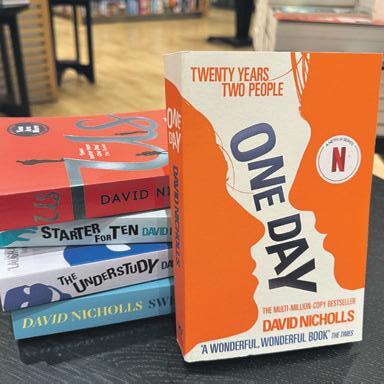
Despite selling the rights, Nicholls was still very involved creatively in the production of both One Day as a film and series: ‘They were very kind to have me involved and I made it with a number of old friends and so creatively and artistically I was very involved, and that made me incredibly happy. It was definitely one of the happiest and craziest experiences I've had. It was just bliss to work with such amazing young talents.’
Talking about his fondest memories in Bristol, Nicholls spoke warmly of his university experience, performing regularly in plays, from Shakespeare to devised work to comedy. ‘I'm not exaggerating when I say I was I was really bad! But I worked with some brilliant people, many of whom have gone on to have brilliant careers as actors, directors and writers. I was directed by my friend Matthew Warches [now Artistic Director of London’s Old Vic] and worked with people like David Greig - really fantastic and talented people.’
Speaking on how the idea for You Are Here came about, Nicholls spoke of developing ‘this complete obsession with walking specifically in the north of England,’ adding that, ‘I wanted to find a way to write about that and to write something that was both very close up on the characters, almost like a close up camera of their relationship and reactions and at the same time, something that took place within this big, epic beautiful landscape.’
‘[Writing You Are Here] also involved a sense of immersion as I did the walk and took a lot of inspiration from the landscape, which was incredibly helpful.’
Despite becoming such a successful writer in his own right, Nicholls never ventured much into writing as a university student (Epigram had not been founded until just after, in 1988!). Instead, performing in plays became an incredibly formative part of his time at Bristol, later lending him to establishing himself as an actor before later becoming an author and screenwriter.
‘I did a lot of acting but no writing at all. I think I regret that’
One of his other novels One Day was phenomenally successful, following the story of two characters Emma and Dexter across the same day (July 15) for twenty years watching how their relationship evolves. Nicholls initially adapted the story in 2011 into a feature film starring Anne Hathaway and more recently, the story was reimagined as a Netflix series starring This is Going to Hurt’s Ambika Mod and The White Lotus’ Leo Woodall.
Despite wishing he’d done more writing as a student, Nicholls o ered advice to any students hoping to follow in his footsteps: ‘Find the time to watch movies and read books outside your familiar genres, you will find other people’s work will provide fuel, I think. You must really just take everything in, and it will find its way to your own work. The books, films, TV shows and plays that you read, watch and get involved in at this time of life will find their way into your bones and be useful in completely unexpected ways.’
If Starter for Ten is anything to go by, this advice definitely rings an element of truth to it!











From mushrooms to manky pillows, Bristol students have had their fair share of mould horror stories. Leah Hoyle speaks to four University of Bristol students to gather their worst experiences with mould.
By Leah Hoyle, Second Year English
The general standard for student housing in Bristol is low, mould feeling shamefully normal when the obligatory ‘so where abouts are you living’ question










2002. That article is six months older than me – students have literally been

















Doing some digging through our archives this month, I discovered an Epigram article titled ‘The House of the Rising Damp’ dated October 16, 2002. That article is six months older than me – students have literally been struggling with unacceptable housing conditions for longer than I have been alive, and it’s only now the issue is being taken seriously. This month, we reported on the government finally taking action against mould in social properties – but not in private rentals. This must go further. Everyone deserves the dignity of a dry home without, as you can also see below, literal mushrooms growing on the ceiling.




crops up. In reality, the mould is not just relatable but has serious health hazards and leads to some pretty horrendous horror stories. Epigram has interviewed University of Bristol students, revealing a disturbing pattern of negligent landlords, hidden mould problems and unsafe living conditions.
In a conversation with a second-year law student, he spoke about a leak in his upstairs bathroom which caused black mould to encase the ceiling of the kitchen. This leak created a knock-on e ect throughout the rest of the house, the mould spreading to his bedroom and at one point getting so bad that a harvestable mush-

room began growing on his ceiling, emerging through the mould.
Luckily for this house, the landlord acted quickly, coming in the next day to fix the leak. The mould was cleaned and the house was provided with mould spray to ensure the spores were kept at bay.
However, some students aren’t so fortunate. One second-year chemistry student, having not repositioned her room since she moved into her house, discovered a ‘massive patch of mould’ behind her bed – the decaying wall carefully hidden behind her pillows. After three months of living completely unaware of the issue, the student moved her bed away from the mould patch and reported the matter to her landlord. The landlord has, however, not only failed to address the issue but has also failed to respond. Similar to other mould-related testimony gathered by Epigram, this is a cautionary tale to always check behind your beds.
In the 2015 Bristol SU survey, one student response o ered a perspective on the mould epidemic as a result of oversubscription at the University of Bristol: ‘The supply doesn’t meet the demand [...] Most accommodation in the private sector has problems and should not be let legally but are.’ The survey also revealed that 75 percent of students report dealing with mould or damp in their student house in some capacity – suggesting nearly 22,000 students are being exposed to mould in Bristol. One second-year Maths student living near Cheltenham Road is one – with a severe case of mould exacerbating his asthma.
The bathroom attached to the student’s bedroom in the seven-person house was littered with growing patches of mould, eventually framing the once-white bathroom light with what looks like something out of Stranger Things. This left the



We will continue telling students’ stories as long as there are still stories to tell. We’re making progress, but we must go the entire way. If you agree, please sign our petition to tell our leaders from the Wills Memorial to Westminster that we want, once and for all, to Break the Mould.
Annie McNamee, Editor in Chief
bathroom unusable, with the smell of dampness soon emerging into the student’s bedroom.
While the issue was quickly resolved within a week following an email to the student’s landlord, further issues such as mould in the upstairs bedrooms of the house as well as a slew of never-ending plumbing issues continue to persist.








Living above the infamous triangle club, La Rocca, another second-year Law student had significant qualms regarding the condition of her flat. Moving in last June with a ‘very good condition’ claim from her landlord, she couldn’t have envisioned what was to come. After creating a list of issues throughout the year, the landlord promised to have all faults resolved over the summer period. When they returned at the beginning of second year, nothing had been fixed.
‘We were told to just keep cleaning the ceiling which is so dumb’, the student told Epigram, ‘the issue is that there just isn’t proper ventilation.’







failed to address the issue, leading the situation to worsen: ‘We had a rug under the leaking area which was soaking wet and had gone mouldy essentially because of how much water must have come out of the ceiling.’
‘Ultimately’, she noted, ‘it’s just issue after issue that we personally have to constantly deal with and chase up which we do not have the time for, obviously.’
‘We were told to just keep cleaning the ceiling which is so dumb - the issue is that there just isn’t proper ventilation.’
Among the many maintenance issues in the student’s flat, including mouldy mattresses, ceilings and window sills, the situation reached a crisis point when the bedroom ceiling began leaking one night. Substantial amounts of water dripped down her walls over her mirror and decorations. The issue was resolved only for it to happen again.
Further leaks began to emerge throughout the property – a notable one appearing in the living room during the winter break. Once again, the student’s landlord
Despite the widespread mould problems plaguing Bristol’s rental properties, students continue to face exorbitant rents for these substandard living conditions. Despite the consistent leaks and mould, the second-year law student divulged that her flat was – somewhat ironically – advertised as a ‘luxury student apartment.’ Each of the tenants pays around 183 pounds a week. This already high price excludes bills, with energy prices rapidly increasing. The tenants have repeatedly asked for a rent reduction – requests that have been repeatedly disregarded by their landlord.
These four horror stories are just the tip of the iceberg of the mould problems Bristol students are facing, reiterating the necessity for action to be taken against negligent landlords who refuse to address the growing issue.


By Nathan Flanders Policy Lead
Almost 50 percent of tenants having problems with damp in their house, and the UK government is finally taking action against it.
On February 6, the government announced that from October 2025 landlords of social properties will be forced to repair all emergency problems within 24 hours, and instances of damp and mould ‘in set time periods,' with intent to extend measures to ‘excess cold and excess heat; falls; structural collapse; fire, electrical and explosions; and hygiene hazards’ over the next couple of years. This is part of the next stage of Awaab’s Law, named after two year-old Awaab Ishak who died in 2020 due to mould exposure in his rented home.
Ishak’s death is a particularly severe consequence of unchecked mould in homes, but there are many other negative e ects of living in a mouldy house, such as respiratory problems and worsening allergies and mental health - you can learn more about how to treat and prevent mould, as well as its e ects on the body, here.
As well as harming the tenant, mouldy properties cost the NHS an estimated £1.4 billion, so creating drier homes could save the government money in the long term.

While the new regulations are a step in the right direction, there has been pushback to the speed of their rollout. Housing charity Shelter criticised delays to the law’s introduction.
‘Social housing tenants will have to wait years longer for this vi-
Nathan Flanders, Policy Lead
tal protection,’ said Shelter CEO, Polly Neate. ‘These delays to implementation represent a real risk to the health and safety of tenants, and puts lives at risk.’
Those renting from the private sector will have to wait even longer, with plans to apply Awaab’s Law coming in future as part of the Renters’ Rights Bill. This includes a majority of the 75 percent of University of Bristol students who have problems with damp.
If you are a student, and you want to see action sooner, sign the petition to support Epigram’s 'Break the Mould' campaign and hold bad landlords to account. If your house or flat has problems with mould, check out our dedicated ‘Break the Mould’ page on the Epigram website for advice from fellow students on how best to fix it yourself.
Epigram is launching ‘Break the Mould’ to improve the conditions of student housing in Bristol and beyond, with a particular focus on tackling mould. We are lobbying the Bristol SU to extend their ‘My Rent, My Rights’ campaign by introducing ‘Rent Review’, a student property review system where renters can review their house or flat, for example its condition, any issues that arise, and the speed and e ectiveness of the landlord’s responses. This would work together with an SU-run accreditation system, where good landlords are approved by the SU. Both the rating and the accreditation would be visible to all students. This would incentivise landlords to focus on the quality of service they are providing to tenants, and help students to avoid poor housing.



As Epigram, we will also create a dedicated page on our website containing information about mould, its consequences, and best practices to prevent and fix it. This, we propose, would be linked to on the ‘My Rent, My Rights’ campaign page to give students an accessible bank of information that they can use.









The Break the Mould campaign has received the backing of Lucy Pears, Bristol SU student living o cer, putting us one step forward to making our ‘Rent Review’ system happen.
By Sofia Lambis, News Investigations Editor
Bristol SU’s Housing Officer has expressed her support for Epigram’s ‘Break the Mould’ campaign.
Epigram’s campaign aims to empower tenants and raise awareness about the growing mould crisis in Bristol’s student homes.
lord or letting agent communicated with them. They are calling on Bristol SU to help create this and to establish a landlord accreditation system based partly on these reviews.
Currently the SU provides information on Bristol’s student rental market through the ‘My Rent, My Rights’ campaign and housing-related legal advice via Bristol SU Lettings and The Law Clinic. Epigram’s goal is to improve these existing measures with an increased focus on the condition of Bristol’s student properties.






Lucy Pears is the elected Student Living O cer for the 24/25 academic year and is involved with housing, sustainability and student welfare. Working with the SU, the University, and the wider community. She advocates for students and ensures their voices are heard. Launched earlier this month,
Aiming to increase transparency and incentivise landlords to be more responsive Epigram is proposing a ‘Rent Review’ system. This TripAdvisor-style platform would let students review the condition of their accommodation, share any issues they faced and rate how well their land-
In a statement Pears said: ‘I'm very happy to support the work that Epigram is doing with the ‘Break the Mould’ campaign and I'm looking forward to working with them moving forwards.













‘In my role as Student Living O cer I hear about the persistent mould issues that our students face - but it doesn’t take being in this job to know how damaging and widespread the issues with mould are.’ A Bristol SU survey found that 75 percent of students have problems with mould -









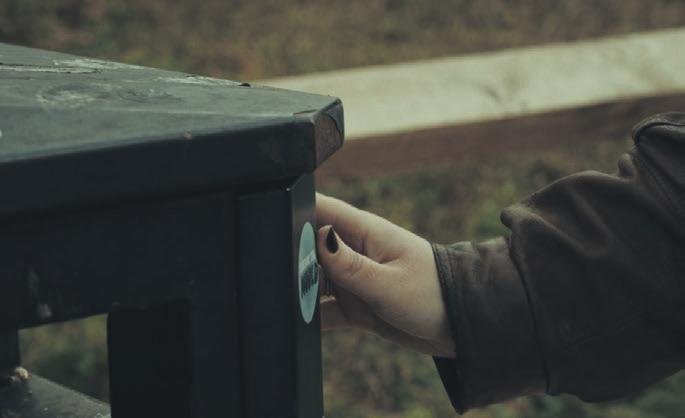






and this finding is from 10 years ago!








Ziggy Himsworth gives an insight into the Bristol Ballroom scene, a space for transgender and queer people to perform, experiment and, most importantly, have a good time
WhenI started at UoB last year, I had not told anyone I was trans. It is a lonely situation to find yourself in, and in all honesty, it stays lonely a long time after you give up the closet. It is my opinion that the Bristol Ballroom Community is the only space in the city where shame cannot get through the door, the excellence you are to witness is far too hypnotising for that. When the MC says, ‘The category is....’, and the house music begins, and the death-dropping starts, you can feel nothing but love.
This is an account of the characters I have witnessed in the scene over the last year, and an introduction to Ballroom culture—I hope it encourages some of you to bring
it at the next function. The names of performers may have been remembered, they may have been imagined. I apologise for that, some details got lost in raspberry vodka.
In the Trinity Centre, folding chairs are lined up in rows either side of the hall to make a runway. There are more people than seats, so we crowd the bar, stage and judge’s table. It is impossible to know who you are standing next to, whether they are an observer or the greatest dancer in the room. Some come in drag or executive realness, in Studio 54 sequined mini dresses or KitKat club latex, but the best performers are often in a tank top and shorts.
calls the names, and one by one they vogue down the runway.
‘A House is a family formed in kinship, not biology.’
The MC oversees the ball and narrates the event. They might tell you to walk in the style of a legend, ‘Bring it like Ma Rainey. And if you don’t know, then get to know.’ They might repeat what they hear for the audience’s reaction. ‘You know what I just heard down here, “I bought these boots with my OWN money!” The Budget, darling!’ And they will make certain that first-timers don’t use the runway as a dancefloor, or walk without knowing their history.
Miss Major said of the New York Ballroom scene, ‘Whether you participated, whether you watched, whether you just wore a little cocktail dress and a small fur coat—it was just a nice time.’
Our nice time starts with the roll call. We are told by Gomez, the MC, that the energy must not dip, the performers are here to showcase their talent and we must show our appreciation. He
The category is Old Way and Erica moves like hieroglyphs, geometric. Influenced by fashion magazines and martial arts, Old Way focuses on symmetrical lines, precise posing, fluid movement. Erica wears a red ‘90s windbreaker and thick rimmed black glasses. Her House chant, ‘Ollllldd...Olldd Naavvyy!’ and shout when she hits the floor.
A House is a family formed in kinship, not biology. The first Houses were formed by Black and Latinx TLGB people, rooted in the necessity for an alternative community that could provide safety and


knowledge to children who had no one else. In my experience, the knowledge that older trans people give you is the only way through. You need someone to tell you how to get on DIY hormones, you need someone who has endured the psychological body-horror of transition to believe that you can do it too. I'll tell you now, trans youth of Bristol, if you feel that no one is telling you how to survive, you are not looking in the right places.
‘I'll tell you now, trans youth of Bristol, if you feel that no one is telling you how to survive, you are not looking in the right places.’
violence often, Bristol is the safest place I have ever lived. No, Realness is the understanding that no matter how di cult the government makes medical transition, there is work to be done. If you can carry yourself with conviction, speak with confidence, and dress with deliberation people will believe you. And so, you can become yourself.
One of the most memorable moments is a lip-sync to Charli XCX’s ‘Apple’. The Doctor 007 mimes driving a car, duck walking up and down the runway for 3 minutes. (‘I’m gonna drive gonna drive all night.’) It is completely insane.
Femme Queen and Pretty Boy Realness are my favourite categories. Realness was put this way in Paris Is Burning (2007):
‘If you can pass the untrained eye or even the trained eye, and not give away the fact that you’re gay, that’s when it’s Realness. [...] It’s really a case of going back into the closet. [...] You erase all the flaws, all the giveaways, all the mistakes, to make your illusion perfect.’
The significance of this idea, to me, is not that I feel at risk of physical
A few minutes into European Runway, Amani Cosmo stops the walkers, gets up from her table and says, ‘Can I give you all some advice? Pick a lane, and STICK TO IT!’ Clicks in agreement from the other judges, and the runways get better. Amani is stunning, a true supermodel. Her hair flips are breakneck.
Sex siren comes last. It was the sex worker’s category, the gurls working the street would come and claim their trophies at the end of the night. This is the first time I ever saw a trans man lusted after. He’s called Daddy; he was drawn by Tom of Finland—cowboy hat and harness, square beard. He kisses the Mother of Bristol, Aysha Old Navy’s hand, everyone goes mad, and I cry.
There are open community sessions at the Island every Monday from seven pm if you want to train, and Kiki Balls every few months. I’ll see you there.
Editor
Co-Deputy Editor
Co-Deputy Editor Subeditor
Arts Commisoner
Arts Correspondent
Bridger
Heathcote
Abbot
Carsley
Chandler
Masluszczak

Daisy Dennison argues the need for inclusivity in fashion, using the example of brand Unhidden
Daisy Dennison
Second Year English
Last week Fashion Week once again returned to London, and those who couldn’t walk the runway took to the streets to showcase their best looks. Amongst the big brands and celebrity lined runways, Bullock Inclusion’s ‘Future of Fashion’ show o ered something more than carefully curated outfits and A-list front rows. Centred around both sustainability and social inclusion, this show’s catwalk was both walked and wheeled by disabled models in sustainable designs from Central St Martins and the Royal College of Art students, as well as up-and-coming brands like Arcas Bear (@arcasbear_sneakers).
With almost 150 charity shops across our city, the fashionistas and charity shop warriors of Bristol may consider themselves well-versed in the art of shopping sustainable fashion. However, what is lesser known to us, and the wider fashion sphere, is the term ‘adaptable fashion’, a central part of the show’s e orts towards inclusion. The show
opened with a panel discussion in which Victoria Jenkins (@Victoriaanno cial), CEO and founder of Unhidden, outlined why digital ableism and marketing are to blame for this lack of awareness. Unhidden is an ‘adaptable’ fashion brand, and what this means is that they produce garments that can be worn by everyone, but they have ‘adaptive’ features such as magnetic closures and adjustable fits to allow for stoma or catheter access. They are clothes that are functional for those with disabilities, without compromising style and identity. Unhidden now have a partnership with Primark, bringing adaptable fashion to the high street.
Unfortunately, despite this collaboration, and the undoubtable need for brands like this, it is still relatively unknown to the average shopper. This is because of something we all constantly interact with: our digital algorithms. Nowadays digital media plays an essential role in how work from creators like Jenkins is seen, but digital ableism means there is an algorithm actively working against engagement with her platform. For example, if you use camel casing in your hashtags, or alt text, it reduc-
es your reach. Jenkins explains that this is not just experienced by adaptive brands and that when bigger brands do campaigns on ethnicity or disability, engagement plummets.
‘Digital media plays an essential role in how work from creators like Jenkins is seen, but digital ableism means there is an algorithm actively working against engagement with her platform.’
Inclusive brands like Unhidden also face digital challenges by Meta’s 2022 decision to make the disabled community a protected characteristic, meaning you can’t target them for adverts on Meta platforms. This means that if Jenkins tries to sell an item of her clothing by using an image of a person in a wheelchair, the post is flagged and if there are multiple posts like this from an account they are suspended and/or banned from advertising. So information about incredible brands like these simply aren’t reaching the people who need them. Most people will agree that fashion is a means for us to express our identities and our creativity. Those with disabilities should have just as much opportunity to do so. This is why shows like ‘Future of Fashion’ and brands like Unhidden are so important in growing awareness, and therefore inclusion, in the fashion industry.
Louise McOvens is incredibly a fivetime sepsis survivor and amputee

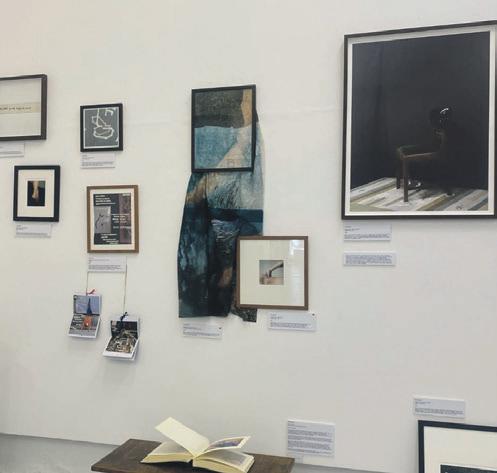

following a car accident when she was 18. Her outfit is made entirely out of recycled materials, and she described how the students designed her skirt ‘with a panel to allow me to access [her] leg and show it o if [she] wanted’ or release a button which covers it. Creative and adaptable designs
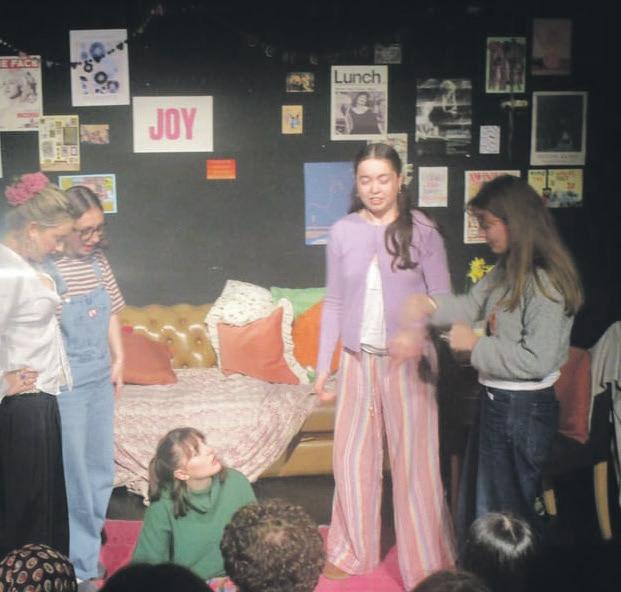
like those featured in this project are so important in helping people take their disabilities in their stride and this is why shows like ‘Future of Fashion’ and brands like Unhidden are so important in growing awareness, and therefore inclusion, in the fashion industry.

Last month, I had a conversation with a friend about film recommendations and we discussed the di erence between genuine niche interest and pretentious drivel. I came away with this sentiment that I love an esoteric suggestion as long as its sincere. So, this month we tasked our writers with recommending their deepest of deep cuts. Here is Max Graham writing about the transgressive, controversial films of Harmony Korine.
Max Graham Second Year, Philosophy
Understanding Harmony Korine is no easy feat. He embodies a complete blurring of fiction and reality, done so in prolific fashion. An artist who dips into filmmaking, painting, short films, music videos for the likes of Sonic Youth, a novel, and even his own installations. Harmony's work is absolutely singular and within its own realm of absurdity. He represents a perfect, unique symbiosis of insanity both in the director and the resulting films. I want to give a perspective on Korine's elusive character, which ultimately mystifies the already-blurred meanings of his films but hopefully entices a leap-offaith into the rabbit-hole of his bizarre deep cuts ready for discovery.
Tales of harmony are given almost mythic status. It is almost impossible to decipher which are true, but I believe the spirit of the director and the way in which this informs his films is epitomised by the legendary, fabled tales of 'Fight harm'. The unreleased short film consists of Harmony himself provoking strangers on the streets of New York and in turn being beaten up. Repeatedly. This rather uncomfortable, I would say brutal, image for us is retorted by Harmony to be ‘the great American comedy.’
Korine’s films have enjoyed much
precedence in recent years as the fountainhead for a grotesque aesthetic of cultural malaise, especially within youth culture. He established himself as the enfant terrible of cinema with the notorious emergence of ‘Kids’, a gritty portrait of street-kid culture in 90’s New York. Written for director Larry Clark, Harmony himself was 19 at the time of writing the script, a precocious, yet erratic, usually high and ultimately degenerate youth. We can see the film as a dramatised reflection of Harmony’s environment at the time, as the characters used are mostly those found within the skate-culture surrounding Washington Square Park. The film ensued moral panic regarding the nihilistic portrayal of American youth alongside a well-received critical reception, even an appearance at Cannes.
Gummo is Harmony's directorial debut, a riotous launch into cinema featuring the tornado-torn town of Xenia, Ohio. The citizens themselves make up most of the cast, resulting in a naturalistic portrait of middle-America that filmmaker Gus van Sant describes as ‘both bracingly realistic and hauntingly dreamlike.’ You are thrown into a flurry of scenes and impressions without any string of logic to their arrangement or their content. Bacon taped on the wall, Mark Gonzales wrestling a chair, the character ‘Solomon’ eating spaghetti and chocolate in the bathtub,
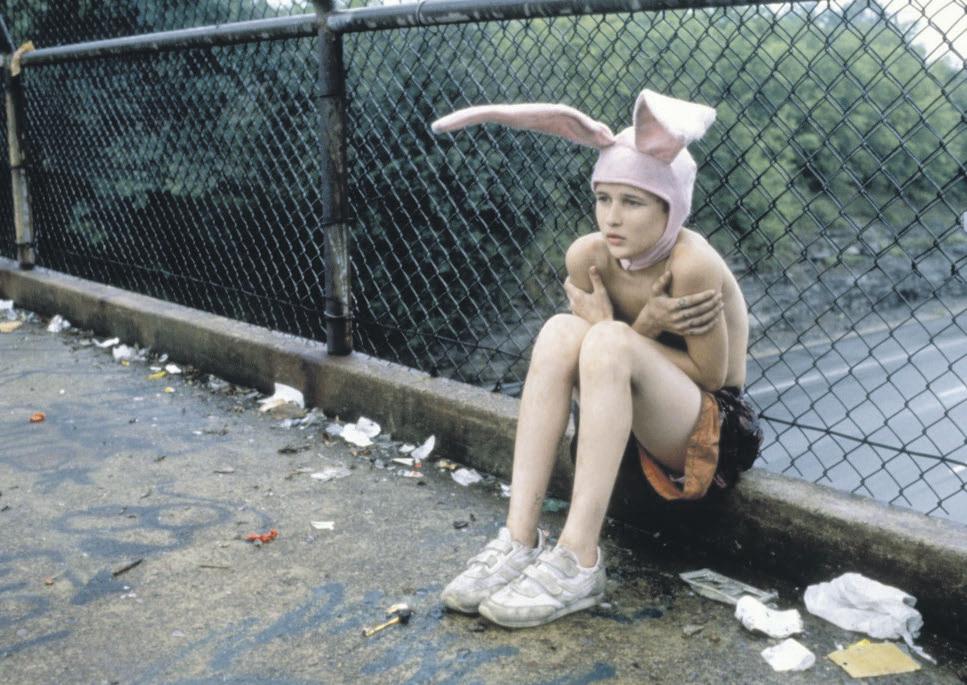
Chloe Sevigny’s character dancing to Madonna’s ‘Like a prayer.’
Much like ‘Kids’, Gummo garnered widespread controversy. Janet Maslin of the New York Times nominated Gummo as ‘the worst film of the year.’ This could be a fair valuation. However, the hallucinatory logic of Gummo is intended to enact Korine's insistence on throwing traditional notions of filmmaking in the air. In his infamous series of Letterman interviews, Korine declares that ‘films should have a beginning, middle, and end. Just not in that order.’

Despite their oddities and controversies, both Gummo and Kids still have enjoyed credence as culturally significant films. More obscure is the 1999 ‘Julien donkey boy’. Julien has schizophrenia, and the film follows his grappling with a disjointed mental state and a surrounding family, which is admittedly dysfunctional. His family includes the wonderful Chloe Sevigny, and quite surprisingly Werner Herzog as the dad, delivering an unforgettable scene drinking out of a house slipper. Korine states that ‘directing him (Herzog) is like ice cream- it just tastes good.’ Korine has some deep-cuts that
seem to betray any significant interpretation as found in Gummo and Kids but rea rm the necessity of a deep-dive. In ‘Mister lonely’ you get skydiving nuns doing tricks on a BMX bike in the backdrop of a glimpse into the life of a Michael Jackson impersonator. If this sounds beyond the pale of any sane imagination to you, you are completely right. But that’s the beauty of Korine, who you need to take on his own terms.
In the same spirit, ‘Trash humpers’ is an anti-film. It follows the same documentary-like, low-resolution aesthetic of Julien donkey boy. Just definitely without its poignancy and melancholy theme. Instead, you have a group of elderly people with a hilarious predilection to vandalism and sleeping under bridges- all while leaving low-stake destruction and anarchy in their wake. Korine describes the film as ‘something you would find buried in a ditch somewhere in Albuquerque.’ If that isn't selling the
film, I'm not sure what else will.

Now 52, Harmony is far from the transgressive teen who wrote Kids. Despite this, he remains singularly faithful to his intent to subvert cinema. Works like the 2023 ‘Aggro Dr1ft’ carry the experimental nerve of his past work with a visual intensity and luminosity to sear your retinas. Shot using thermal imaging, it follows an assassin, played by Jordi Molla, in a fractured assortment of encounters in a crime-ridden Miami. You are bombarded with bright and attention-grabbing neon hues that Harmony intends to invoke the same over-stimulated passivity of social media consumption and aesthetic novelty. Just beware of the resulting headache.
I hope this sketch of an endlessly interesting artist has sold you an interest into his work. There exist equally unorthodox deep cuts of his that space did not permit to show, which are perhaps even more deranged. Take him with a grain of salt and enjoy.
Editor
Deputy Editor
Deputy Editor
Subeditor
Subeditor
Bradley-Cole
Wattret
Wen Siow
Chatburn
Jackson

movie since the Oscar winner Parasite six years ago!
Mickey 17 marks the release of Bong Joon Ho’s eighth feature film – the sci-fi/dark comedic project directed and envisioned through the eyes of a filmmaker well-known for taking an idea and spinning it completely on its head. As expected, (if Joon Ho’s previous film Parasite was anything to go by) the film was packed with twists and turns that could almost be perceived as too crazy to be real – very much

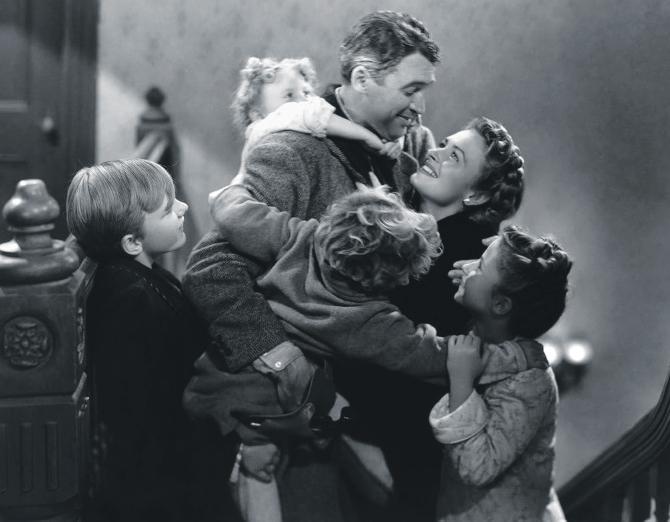
It's A Wonderful Life (1946)
Edgar Wright
Look, I know a traditional Christmas film on this list might be slightly jarring, especially as we are deep into the light spring of April, but It's a Wonderful Life is an absolute timeless classic that should be watched any time of the year. Frank Capra's movie follows the life of George Bailey (James Stewart), an aggrieved businessman who is shown by a budding angel what life would be like if he had never been born.
marking a role which solidifies Robert Pattinson as an actor that should not be messed with, straying very far from his vampire roots.
Mickey 17 stars Robert Pattinson as the titular role of Mickey Barnes – a bankrupt American man racked up to the eyeballs in debt from taking out a loan for his failed macaron business. After being extensively warned, both him and his friendstroke-business-partner Timo are threatened with being ‘chased to the ends of the Earth’ by a loan shark should they fail to pay back their debt imminently. From this, the duo decided to take that threat quite literally and leave on a oneway expedition to colonise the planet Niflheim, with Mickey as the spaceship’s only ‘expendable’. The film opens to the audience meeting Mickey having already been expended 16 times prior… hence the title.
Based o Edward Ashton’s 2022 novel Mickey7, the film was adapted and brought to life for the screen by Bong Joon Ho who wrote, directed and produced this film – and with that, put his signature spin on the original concept depicting an ambitious sci-fi backdrop rooted in critical existential questions on what it means to be human and where technology is taking humanity moving forward. I personally found the film to be a very insightful and gripping watch and thought Robert Pattinson did
Felix Glanville Second Year, History
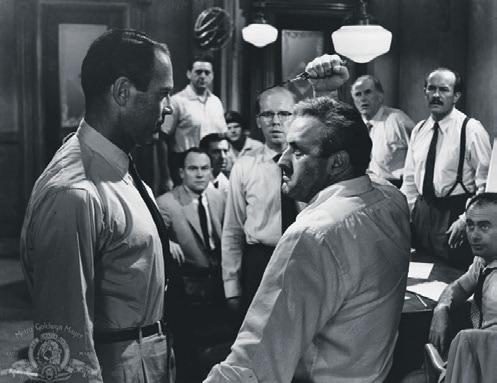
12 Angry Men (1957)
Sidney Lumet
To a much more serious film, 12 Angry Men follows twelve men deciding whether an 18-year-old Hispanic boy is guilty of murdering his father, with Juror eight, our protagonist (Henry Fonda) believes he is not guilty and demands a re-examination, for what he believes to be a rigged trial. This highly political film reminds us of how the justice system can be corrupt and malicious.

a fantastic job as Barnes, who (I am sure those who watched the film will agree) is not an easy role to play, especially since throughout the film Pattinson impeccably plays the dual roles of Mickey 17 and Mickey 18. This role quite frankly could not be further from his Twilight roots, with each Mickey having rather nuanced qualities – the underlying insecurities of 17 complements (or rather balances out) the feistiness of 18, making for a film that keeps you on the edge of your seat and impressively justifies its 137-minute running time.
With supporting roles from Naomi Ackie as Barnes’ love interest Nasha, Steven Yeun as frenemy Timo and the ever-brilliant Mark Ruffalo as a Donald Trump-esque leader of this astronomical mis-

The Sound of Music (1965)
Robert Wise
Now we have quite a di erent thematic transition, to The Sound of Music. Despite the film's innocence and musical warmth, there are some darker social messages that we must be reminded of. I always associate this ’60s classic with nostalgia and family film nights, yet the story of the Von Trapp's escape to freedom is an uncomfortably foreboding one, as long as you two keep your eyes on the screen and not on each other.
sion, and Kenneth Marshall alongside Toni Collette as his wife Ylfa, there really is a star-studded cast taking part in a film quite unlike anything I have seen before (in a good way!) – there is sci-fi, and dark comedy, with some adventure also chucked in for good measure.
Mickey 17 is a great choice to watch in cinema, the twists and turns keep you guessing what will happen next and is a captivating sci-fi experience. Saying this, the undeniably wacky concept will naturally mean the film is not for everyone and compared to Joon Ho’s previous film Parasite I don’t think this will have as long lasting an impact. That being said, if you are enticed by any of the ideas mentioned above, I would still not hesitate to give this film a watch!
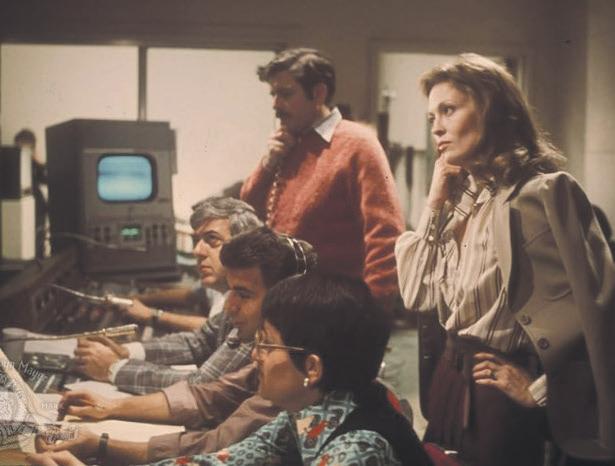
Network (1976)
Sidney Lumet
Finally, we have reached the 1970s and a discovery of how media is causing us to lose our sense of self. Network shows us how immoral network executives can be, just to get higher ratings and viewership. This film has been critically praised as a satire of the entertainment and media industry, rather ironically picking up four Academy Awards.
The trailer teases snapshots of a selected class of Bristol’s finest up-and-coming artists
Sophie
Scannell
Co-Deputy Music Editor
From its hidden gems to its soaring stars, capturing the vibrancy of Bristol’s music scene into a film's worth of footage is not an easy task by any means. Thankfully, UoB Film and TV graduate, Cerys Gadsden, is taking it head on.
Sitting down with Epigram, Cerys talks DIY filmmaking, an infuriating country-wide lack of funding for the arts, and how a web of interconnected artists in the city scene sparked the creation of ‘Bristol Beats’, the graduate’s upcoming documentary project.
Getting into the guts of the film’s genesis, I’m delighted at how utterly Bristolian it is. Hearing Getdown Services’ ‘Cream Of The Crop’ for the first time thanks to her housemate Rosie, Cerys’ ears were immediately pricked at the band’s spoton capturing of a gentrified city with their hilarious and quip lyricism: ‘Cabot Circus. Sh!thouse. Who
wants a Ben's cookies? Not me.’
One spontaneous message to the band later, and it wasn’t long before an interview was arranged, laying the groundwork for ‘Bristol Beats’.
From here, Cerys’ friend and collaborator, Bethan Cox (AKA Meatgrinder), recommended the likes of singer-songwriter Zoe Carr-Smith, and pop-folk collective The Freakshow to interview for the project, o the back of her own photography work in and around the city’s live music scene.
Through Zoe came connections with Ok Ewan, an artist who moved to the city purely for its sonic legacy, and Nat Oaks (another UoB alumni!) who would make up the last of the interviewees, after Cerys discovered her during a gig at Fuse and instantly fell for her vibrant sound.
Community lies at the heart of all artistic endeavours, for musicians and filmmakers alike. Cerys admits that this web of connections that has made her film possible is still not lost on her, telling me that she is yet to listen to Getdown Services now without thinking ‘they’ve been in my living room!’
Despite an undeniable bustle within the city, our attention turns to the lack of coverage about scenes exactly like Bristol’s. ‘Portishead and Massive Attack are some of the biggest in the country’, Cerys defends, which begs the question of why Bristol’s musical magic isn’t being publicised in the masses it should be.
‘the band’s spot-on capturing of a gentrified city with their hilarious and quip lyricism: ‘Cabot Circus. Sh!thouse. Who wants a Ben's cookies? Not me.’
Taking me through this gorgeously interconnected game of telephone, it’s clear how big a role word-of-mouth, live performance, and connection between artists plays in the process of getting a creative project o the ground.
Unfortunately, there is an answer, and it’s a bleak one at that. ‘There is not enough funding going into the Arts’, Cerys tells me matter-of-factly, before extending this lament to the state of renters’ rights, and the general cost of living crisis that is increasingly turning artists away from doing what they love, purely because they cannot afford to sustain a comfortable life alongside their creative pursuits.
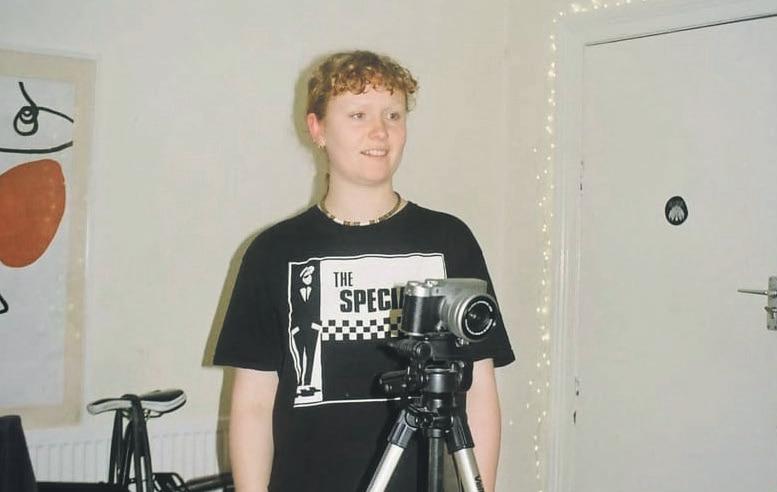



There is less and less interest in keeping the physical reminiscence of music alive in cities like Bristol, where such an eclectic and rich tapestry of sound and culture is held.
‘My Dad tells me about when he went to see Madness perform in the 80s, and the ticket was a fiver’, Cerys recalls, to which follows a lengthy groan from both of us at the increasingly astronomical prices that concertgoers are having to battle with in order to see their favourites perform live.
With her own creative pursuits, Cerys is encouraging a refusal to be defeated by financial hardships: ‘Money should not be the reason people cannot make art’.
In a feat to put this into practice, Cerys’ latest project, ‘Bristol Beat’, embraces a lack of equipment or funding in light of this revelation that art should not be halted at the sight of an empty pocket, or equally, a relentless struggle to break into the film industry workspace, as she asked her post-graduation self, ‘If I can’t get my foot in the door, why don’t I do it myself?’.

years, the city’s scene will once again look vastly di erent.
The closure of live music venues is not a new crisis, yet it remains a heartbreaking reality for music lovers and creatives alike. As we discuss the rapid disappearance of beloved venues across the city, Cerys recalls that much of Josh Law of Getdown Services’ interview in the film was dedicated to his love for Crofter’s Rights—a cherished Bristol venue that then shut its doors just months after their conversation.
Drawing parallels to her own hometown, Cerys reflects on the fate of the Kursaal in Southend—a venue that had the likes of David Bowie and Queen gracing its floors, now reduced to a bowling alley.
‘There is not enough funding going into the Arts’, Cerys tells me matter-of-factly [...]
‘Money should not be the reason people cannot make art.’
The displacement of live music is becoming increasingly severe it seems, but films like 'Bristol Beats' may hold the power to rekindle a lost sense of community and remind us of the spaces that once defined its cultural identity.
Much of the documentary is filmed on phone cameras, where artist interviews were conducted at the filmmaker’s very own home. The documentary is completed with performance visuals shot by Cerys herself, as well as her own performed narrative pieces.
The edit is again completed by Cerys, to much of the filmmaker’s dismay, as she regales the mental struggles of editing day-in day-out. ‘It’s like doing a dissertation all over again’, she says with a chuckle.
The film serves as ‘an archive of Bristol’s history’, Cerys tells me, noting that in just a few
Cerys’ first year of studying film at Bristol was steered in an unexpected direction thanks to the Covid pandemic that meant that the grad ‘only got [her] hands on a camera once’ within the year, an infuriating set of circumstances for such a tactile, artistic medium.
For better or for worse, Cerys’ introduction to the film world became one of endless limitations. Yet, her resilience knew no bounds as in this year of restriction and perpetual views of the same four walls for months on end, an unwavering love of DIY film and homemade art had realised itself.
For the full article, go to: epigram.org.uk
Editor
Co-Deputy Editor
Co-Deputy Editor
Subeditor
Subeditor
..Benji Chapman
.............. Aditi Hrisheekesh
.............. Megan Foulk
Amelie Peters
Sophie Scannell
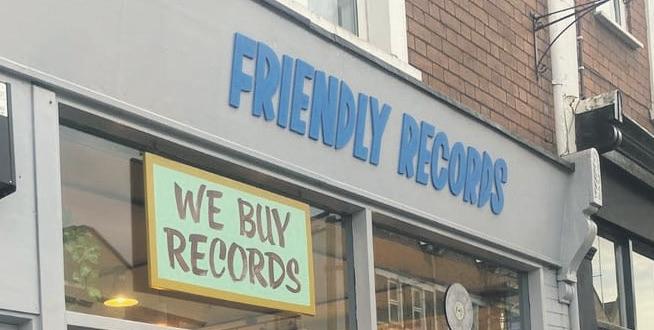
The all-day festival including music, a ra e, and food stands will be hosted on Saturday the 10th of May
Following a slew of collaborations with War Child that saw the Friendly Records team host charity gigs, record pressings, and instore signings, one of Bristol’s most cherished record shops and musical institutions will be hosting celebrations for their money-raising e orts with a festival of all things friendly.
With the announcement on the 10th of February that the Bedminster-based record shop and record label would be hosting a live music festival, fans and local crate diggers based south of the river were quick to speculate which artists would be gracing the lineup given their closeness to a number of standout local musical projects.
Having o cially revealed the lineup to include Sleatford Mods, Katy J Pearson, The 45s, and Zazlio, acts on o er are expectedly Bristolian while containing a spread of genres only as varied as the experience of rifling through the record store’s
very own extensive collections.
Following the recent release of her album Someday, Now, Pearson is one such local artist who will be returning to play the festival after her show at SWX in December 2024. The festival takes a more aggressive-sounding turn towards post-punk with the presence of Nottingham's dystopian dance-punk duo Sleatford Mods.
War Child is a charity with one goal: ‘ensuring a safe future for every child a ected by war.’ In a world presently rife with conflicts, their work stands as a reassuring, if bleak, reminder of humanitarian e orts against the horrors of war and its devestating e ects on the innocent. Having worked extensively in the areas a ected by the Israel-Palestine conflict, their focus has recently been on sourcing emergency aid, education, and mental health support for children in the region.
The first collaboration between the charity and Bedminster's very own Friendly Records came with the release of the first of their ‘secret 7-inch’ pressings that have so far featured local artists like
IDLES, Portishead, and Beak>
Two of the singles from the series have also featured artists from further afield with PJ Harvey, Sleatford Mods, Hot Chip, and even Detroit's very own dearly missed hip-hop champion J Dilla getting a rerelease of their greatest hits.
The first charity concert with IDLES raised over £50,000, with pressings like these and more live performances helping Friendly Record's e orts considerably in furthering their charity work against atrocities across borders. With the records themselves being created by the independent pressing plant Vinyl Press, and sleeve designs from the Cardi -based artist Pete Fowler, they have additionally continued to be a grassroots and largely local endeavour.

Friend even admits that the store began from a somewhat out-ofcontrol record collection, which was in dire need of being shared.
With the first Friendly Festival being planned for September 2020 before lockdown restrictions came into place, Tom said in conversation with Epigram that, ‘we're really pleased to be announcing the lineup this year’ and gave thanks to the Lost and Grounded taproom for hosting the festival.
‘Friendly Records states that it's sought to remain a ‘“proper” record shop’ and 'more than just a place to buy records.’
He also added that ‘War Child are an amazing charity to be working with’, and that they had been entirely supportive of the project from its inception to announcement. om stated also that there will be ‘more announcements to come’ and to keep an eye on their Instagram for further updates.
O cially opened in 2016, Friendly Records states that it's sought to remain a ‘“proper” record shop’ and ‘more than just a place to buy records.’ Its founder Tom

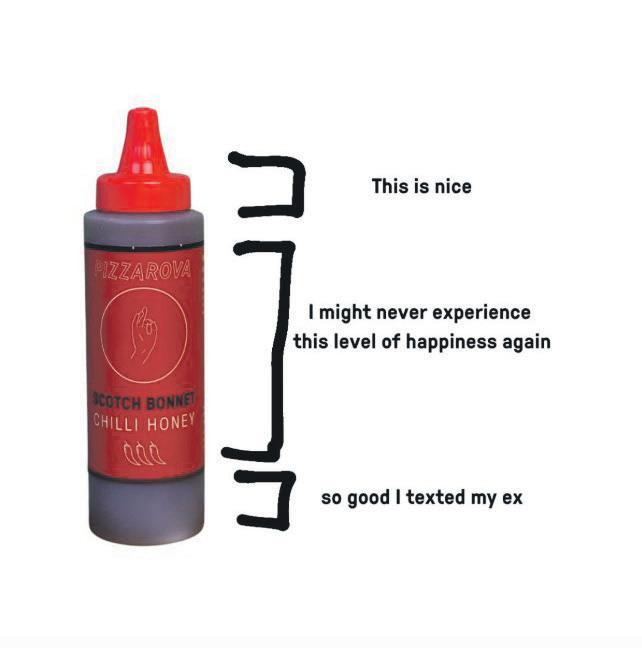

Marinara is a margarita pizza with extra sauce and without the cheese, which is the best bit, in my opinion. If this is your go-to your music taste is supremely basic, but somehow also a bit o -kilter.
You love all the TikTok hits (which is fair), but you only listen to the 15-second sped-up version in-app (which is ba ing).
Unless you’re vegan or lactose intollerant, this choice screams faux-alternative. Its not hard: just get a margarita like everyone else and stream the whole song on Spotify. You don’t have to be weird about it.
This is Pizzarova’s most popular pizza, so it must be doing something very right. Hot honey has shot up in popularity in the last few years, just as pop princess Chappell Roan has achieved meteoric success since her debut album in 2023.
Chappell’s cheesy ‘80s synths and drippingly sweet vocals are the honey on her musical pizza. But she’s spicy too – refusing to be pushed around by paparazzi on the red carpet: she’s rightfully bringing some zing to Hollywood culture.
And the poet-master of lyrics like, ‘I heard you like magic, I’ve got a wand and a rabbit!’, her spiciness is palpable – I’ll take one hot to go!
This one’s for the salty girls. It’s quite a particular taste, but you know what you like. This saline bouquet calls for the queen of art rock – Kate Bush. The vinegary flavours are intense, just like Bush’s full-throttle, wide-eyed theatricality. But those jaunty melodies are addictive – in the same way it’s impossible to eat just one olive, you can’t listen to just one track from The Kick Inside Despite its popularity (and objective goodness), some people don’t get along with this pizza, making excuses like the flavour is too intense: ‘she’s a bit much, she’s just shrieking!’ I suppose we didn’t all understand The Dreaming on our first listen.
It seems that more excitement is on the horizon then for the south of Bristol's musical landmark, and indeed for the independent music in Bristol that continues to transcend borders.

If you’re a self-proclaimed Morrissey fan, this is the only thing you’re allowed to order, sorry! You’d be compromising your morals otherwise – ‘Meat Is Murder’, after all.
The spice in Chappell Roan’s hot honey constituted flirty sex appeal, but I’m not sure the same can be said for an aged, topless Morrissey with a rose in his mouth.
The tickle in the back of the throat from the spiced ‘lamb’ is the stifled cough you choke on when you see the ex-The Smiths singer clad in fascist iconography or spewing racist hate speech. Ah.






The STEM sector maintains a predominantly male workforce. Sit down with Robogals to find out how they’re breaking social barriers for a better tomorrow.
By James Lewis, SciTech Deputy Editor
and Miles Gilroy, SciTech Deputy Editor
It’s so often the case that we pat ourselves on the back and applaud the growth of female participation in STEM. Growing yes, but the fact remains that men are dramatically overrepresented in the STEM workforce. More than two times overrepresented; in 2024, women made up only 30 percent of the UK’s workforce and of today’s STEM graduates, only 35 percent are women. Epigram sat down with Sena Polat, Technical O cer, and Malcom Kazimil, President, of the student-led group Robogals to find out what they’re doing to
break the lock on this boy’s club.
Founded in Melbourne in 2008, the organisation is now global, with over 30 chapters in 10 countries. After a period of inactivity, the University of Bristol’s chapter was revived last year by the hard work of their committee who, Malcom explained, ‘achieved so much with limited resources’ and managed to get themselves into schools and achieve re-a liation with the SU. This year, Robogals have taken it ‘to the next level’ now that they’re o the ground once again.
‘While it's sometimes easy, perhaps comforting, to think that growing gender equity is a natural progression for humans , it's not.’
Sena and Malcom share an unwavering commitment to dismantling the old ways of thinking and prove to their students that they, just as much as anyone, have a right to consider a career in STEM. Sena makes the point that girls ‘are really excited about the idea of STEM’, but when ‘they see the field and they see it’s 99 percent boys’ they ‘lose that momentum’ and end up feeling ‘discouraged.’
Above all, Robogals wants to be that proof-of-concept –evidence to anyone interested in STEM that nothing can hold you back, especially your
‘Greater girls' participation in STEM [...] is a need not a want.’
Robogals’ sessions involve ‘coding, programming, and crash courses’ Sena explains. They’ve run a series of workshops in primary schools for the last year and a half since the group’s re-a liation, hoping to impress the importance, but also the rewards, of ‘a creative engineering mindset’ on young students across Bristol.


gender. Malcom told Epigram that ‘we’re trying to provide them people to look up to’. They want to be a role model – to prove if we can do it, you can too.


in an advancing and increasingly technological era, their participation is a need not a want. If the government is serious about their intended goal of a net-zero future by 2050, then hundreds of thousands of new jobs will be created. Estimates vary between 135,000 to 725,000 new jobs, in the green sector alone.
expect them to be like “oh, cool, let’s just invite some random uni students in.”’ Sena calls this ‘the main bottle neck’ of their mission.
‘Malcom and Sena are confident they have enough volunteers’
In fact, research suggests that if girls ‘know or see a woman’ in STEM, they are 33 percent more likely to pursue a career in the field. Sena recalls how she ‘had to find [her] own way and find [her] own role models.’ She hopes that Robogals can reassure their students; ‘just knowing that they have any kind of role model, even if it’s just a friend or just us’ pays extraordinary dividends to that girl’s outcome in life.
And some role models they are; they educated 150 students last year and intend to reach 250 this term alone. With plans for a workshop in Cardi , the group have no intention of slowing down. They appreciate, though, that this can be an uphill struggle because they ‘can’t just email every school and
Malcom and Sena are confident they have enough volunteers for an expanded programme, but they still must deal with their ‘really old’ gear. Sena pulled out one of the laptops that they borrow from another outreach organisation at the university. Almost a relic, it’s about two inches thick and, while it would still confuse your grandmother, the children of today are as tech-savvy as any BA student. Malcom believes that new computers would not only enable Robogals to do more, but they would also be more ‘exciting’ for a generation who have only seen a DVD in a museum.
We need Robogals. We need people out there inspiring, teaching, challenging the antiquated dons. While ‘it’s easy to complain: “oh, there's not enough girls in STEM,’’’ Sena says ‘the best way to change that is to get into a position of power and create a community and make changes within that community.’
‘It’s a good time to be alive right now in the sense that there is so much to do right now’ Malcom says. It’s true, the future is bright; Sena believes, knows rather, that ‘in [her] lifetime we’ll see an equal split.’
‘men are dramatically overrepresented in the STEM workforce.’
While it’s sometimes easy, perhaps comforting, to think that growing gender equity is a natural progression for humans to make, it's not. It requires salt of the earth hard work to disrupt ingrained cultural, social, and linguistic phenomena that keep certain fields of work dominated by one group. Robogals are those change makers, without whom things wouldn’t change.
Greater girls’ participation in STEM careers dismantles what has been accepted in the field for years, but,
This is the second in SciTech's IWD 2025 series. Read the other installments online at Epigram.org.uk




Editor
Deputy Editor
Deputy Editor
Subeditor Researcher
Corin Hadley .............. Miles Gilroy
.............. James Lewis
.............. Ellie Barnes Harrison Phillips



Hannah Stainbank sits down with a researcher from the Universtiy of Bristol to dicuss the intelligence of the planet's largest birds
By Hannah Stainbank Second Year, English
New research released in February by the University of Bristol reveals that emus and rheas are more intelligent than we once thought.
Palaeognath birds, the family that includes emus, ostriches, and rheas, are the most direct living descendants of dinosaurs. A recent study, carried out by Fay Clark, Jasmine Burdass, Annalise Kavanagh, and Annabel King, revealed that these birds have the capacity for technical innovation.
Previously thought to be, as stated in the study, ‘bird brained’ who lacked in ‘intelligence’, this new research implies that they can problem solve. The birds were tasked with lining up a hole with a food chamber. They
found that the birds moved the hole in the most e cient direction 90 percent of the time, indicating that turning the hole was deliberate - a deliberate action to access the food.
Three of the emus and one of the rheas were able to innovate by moving the hole and the same rhea was also able to dismantle the task by taking o the central bolt. None of the ostriches were able to innovate within this task, but that’s not to say they lack the same capabilities as the emus and rheas. The study points out that the ostriches were much taller and therefore the study may have placed ‘postural or beak limitations on ostriches.’

name as the most confident of the three, with the other two appearing ‘a bit more shy.’ Though, I’m not quite sure that Rosie and Tanya would appreciate being called shy.
With the rheas, the di erences between the two was stark. One ‘did not engage at all’, while the other was ‘cheeky.’
'feelings of worthlessness or thoughts of death are impossible to see in rodents,'
Epigram spoke to Jasmine Burdass, one of the researchers, to better understand the impact of this research.
Jasmine noticed that the birds all had their own distinct personalities. They named the three emus after Donna and the Dynamos, from Mamma Mia! Donna earned her
Unsurprisingly, it was the cheekier one that completely dismantled the task by taking the bolt o . Jasmine thought that ‘it got to the point where he was actually just trying to impress us’ and that ‘if you stopped watching him, he would back away a little bit.’ There’s ‘a bit of personification’ to be had, Jasmine said, as she’s unable to draw any concrete conclusions about his showing-o . Even so, it seemed he liked the attention.
One of the key aspects of the research is the fact that the intelligence of palaeognath birds is under researched. People have widely assumed their lack of intelligence, because they have relatively small brains, but this

study challenges that assumption.
Jasmine said ‘it just feels like they’ve been overlooked completely as a category’ and that ‘they could be a bit of an underdog in the bird kingdom.’
'feelings of worthlessness or thoughts of death are impossible to see in rodents,'
The study was fairly small and only provided an introduction to the possibility of large, flightless birds having the
By Miles Gilroy SciTech Deputy Editor
2023 saw the launch of the Euclid satellite, the most precise universe-mapping tool to date.
Data from Euclid is already having profound impacts on our ability to explore the universe. One application of the satellite is the study of Active Galactic Nuclei (AGN), supermassive black holes gradually accumulating gas in the centres of galaxies. Recent work, led by PhD student Teresa Matamoro-Zatarain at the University of Bristol, has seen the discovery of a number of new AGN, enhancing our ability to study them.
The study of AGN is vital to understanding the evolution of gal-
axies, since they play a huge role in the formation of stars in young galaxies. This will help further our understanding of our own galaxy, potentially leading to a myriad of discoveries, including how Earth came to house water and life, or how the Milky Way will continue to change
as we work our way around it.
‘The exploration of the big-data delivered by Euclid is only starting’, said Dr Sotiria Fotopoulou, Lecturer in the School of Physics at UoB. ‘We expect many more discoveries from a true multi-disciplinary partnership.’

capacity to innovate. Jasmine, and I’m sure many more of us, would be interested to see more research into the intelligence of ‘these strange, massive, flightless birds’ that happen to be our closest link to the dinosaurs.
For now, though, it’s exciting to see that we can always challenge our assumptions about animal intelligence. Who knows what other creatures are innovators?
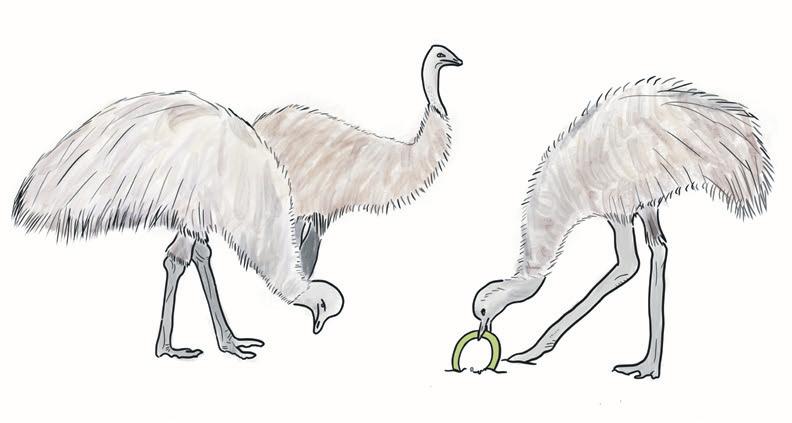
Here we are entering the final chapter of the year. Whether it feels like it’s been a good one or not, I hope you can take a moment to give yourself some credit for all you done (and possibly put up with).
Perhaps it’s the general exam season blues, but the news has not been making me feel particularly optimistic about technology this last month. So, it’s been delightfully enthusing this month to read about some people doing really great things with technology.
We tried to make this month’s edition is fairly cheeryI hope you enjoyed!
Good luck with anything you need luck for! - Corin
‘The University of Bristol Baseball society has developed profoundly since its creation in 2022, Epigram spoke to its members detailing their 'Black Sox' experience.’ This article represents Epigram Sport's motto this year of covering as many unheard of sports as possible. We wish more success to the Black Soxs!!!
The university baseball society,
‘The Bristol Black Sox’, is just another exciting and passionate example of the growing variety of sports here at Bristol. Epigram interviewed Joe Walshe, one of the latest members of the team and Jordan Gaudette, the captain and head coach. They expressed the growing excitement and opportunity in a society that many assume would only work on the sports fields of American colleges.
Since their creation as a society in 2022, the team has had a fresh rebrand, array of give-it-a-go's for curious catchers, and fitting collaborations with UoB Rounders for socials and competitive matches.
Joe expressed his overwhelmingly positive experience of the baseball society since joining, sharing those initial qualms that baseball would not work out as well as it does across the pond:
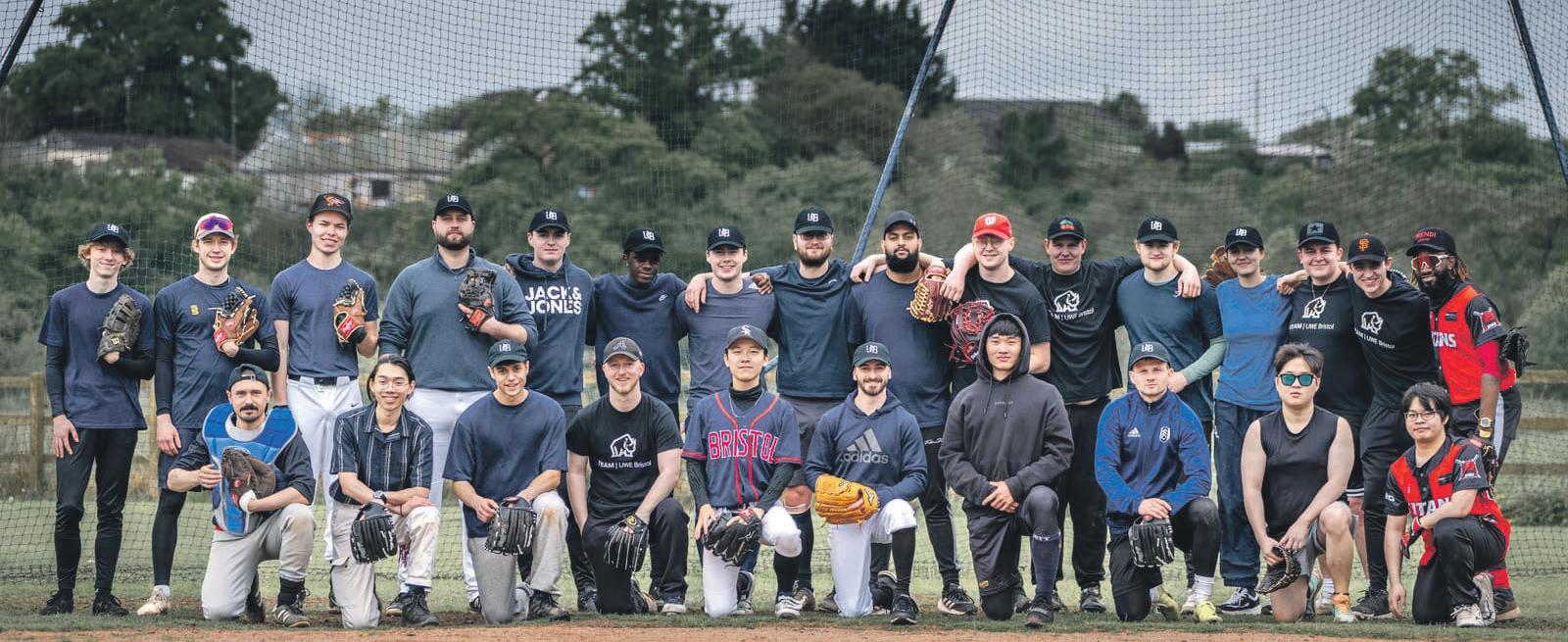
‘With baseball being a rather niche sport over here, I was a bit worried about how it would all go when starting out, but the support from everyone involved has been incredible, and has really helped me progress quickly and gain more confidence every week.’
'There is something about that

uniqueness in baseball being a slight niche in the UK,’ Joe goes on to express. He brings to light the diverse and opportunistic approach the Black Sox have had since their inception: ‘As with all other societies, there is a strong sense of camaraderie. It's also a mixed society, and we have a number of women who join us, widening the community.’
It is also important to note that the society is not solely catered to the most elite and hardiest of baseball player: Joe described how for many people joining this is their first time playing Baseball, with some using cricket as a familiar starting point. He is very keen to assert that ‘this is not a bad thing in the slightest, as it gives everyone in the group opportunities to teach and learn from each other as they progress.’ Joe rightfully believes that the society is not centred on ability nor skill, but a genuine enjoyment of the game and desire to foster a team lifestyle.
Epigram then spoke to Joe about the actual day-to-day running of the society, explaining: ‘There are often two sessions a week, one on Wednesday afternoon on The Downs, and the main one on a Friday evening. Socials tend to be relatively frequent, and there are often collaborations with other societies in the same lane.’
Signs of the Black Sox's collaborative e orts continue further as they work closely with the American football society– a fitting one due to their shared US roots. Joe exampled the 2025 Superbowl social at the White Harte that brought both societies togeth-
The society has ambitious plans as they move beyond their initial founding years and into full swing, captain and head coach, Jordan Gaudette headlined upcoming projects that aim to make their mark next academic year:
‘We are in the process of applying for BUCS entrance for the 2025/26 academic year. We will post updates on the SU webpage once we know more. We currently have no scheduled matches aside from a friendly match we hope to set up with UWE again toward the end of this academic year. We’ve got some big plans for next year... stay tuned!’
Jordan, in the continued spirit of improving and building the society into a fully fleshed operation,
‘As with all other societies, there is a strong sense of camaraderie.’
made a call out to readers to reach out to UoB Baseball ahead of their AGM in late March to put their name in for 2025/26 Social Sec. The commitment to evolve the baseball society is clear and will certainly facilitate a welcoming and successful environment. Joe makes a fitting note to how so many sports societies will optimistically push people who are uncertain about a new/inexperienced sport, but he really is confident in baseball’s unique beneficial experience for fresh faces:
‘I truly believe it can be incredibly enriching learning what is a
completely new sport most people have never watched a minute of. Everyone is so supportive, equipment is provided as buying that stu can be a big commitment, and overall it's just good fun.’
Talking to the members of Bristol Black Sox it is evident that they are driven with an ambition to provide a deeply inclusive and high-octane sports society. Epigram asked Jordan to o er some concluding remarks for those who seem ambivalent about a Bristol baseball society:
‘While it’s a di cult sport to master, it’s an easy one to quickly become proficient at and is a good fit for anyone looking to get more active. We have players at all development levels with varied knowledge of how the game works. The first few sessions of every year are structured around newcomers learning the basics of the game before we move into skills development, so don’t be afraid to give it a go.’
The Bristol Baseball Society is showing no signs of a new society struggling, their plans for the upcoming year will certainly continue to build the welcoming and community that Joe and Jordan described. Best of all, Jordan noted how ‘we can provide all necessary equipment for our training sessions so no worries if you’ve never played before or don’t have any kit!’ Accessibility for this batting crew is paramount, and frankly, refreshing to see.
Epigram is hugely grateful to Joe, Jordan, and the Bristol Black Sox for such informative and engaging words.
and English
Editor
Co-Deputy Editor
Co-Deputy Editor
Subeditor
Faniki Deche Adam Mountain Sean Lawrenson Mihai Rosca

Once a year, climbers from around the country flock to the mighty Steel City of She eld to hurl themselves up a wall as many times as possible. What is this ritual of masochism? An initiation? A religious practice? Almost. It is the annual bouldering BUCS competition. There is an array of competitors; some with a thousand-yard stare

religiously lunging and stretching for an hour and a half. Some who do a few shakes, climb up an easy one and declare themselves ready (me). Despite more than a few injuries on the team, we trundled into our cars and powered up the M5 nervously anticipating the array of techy slab1, dynos2, and gnarly slopers3. (Glossary for normal people: 1vertical routes focused on balance and technical skill, 2ones where you have to leap up the wall and catch a hold, 3holds with little to no edge, making them strenuous and reliant on forearm strength)
The location of the competition, ‘The Climbing Works’, is seen as a kind of Mecca for climbing due to its proud status as the first bouldering-only gym in the UK, and the fact that the head route setter, Percy Bishton, was also the head route setter for the 2020 Tokyo Olympics. It is within a thirty-minute drive from the Peak District, known for grit and limestone boulders and edges adorned with routes aptly named ‘Don't Slip Now’, ‘Master’s edge’ and ‘On a Wing and a Prayer’ climbed by many celebrities of the ’90s climbing world.
After a panic, trying to log into the BUCS website at the same time as about a hundred others, the internet just about held up and we
were raring to go. The setup of bouldering competitions is slightly counter-intuitive, as the emphasis is on being able to do the climbs in as few goes as possible, something that is not hugely emphasized when climbing day-to-day. Nevertheless, the Bristol team was packed with seasoned pros, fueled by Greggs and Lidl, and were ready to be unleashed onto the routes.
For three and a half hours, we balanced, hurled, and pulled ourselves up as many routes as physically possible until the time was up and we settled our aching joints to watch the finals. Whilst the rest of the competition is fairly individual, with a lack of spectators (apart from the people queueing to give that problem a go), the final is a showcase of some of the best climbers in the country, intently watched by some 450 competitors. The competitors are kept in isolation to prevent any cheating by being able to ‘read’ the route and plan the moves, so they are hidden behind a tarpaulin with only the commentators rambling and the cheers of the crowd to give them clues. They come out in pairs of men and women and are given four minutes to do as well as they can on a problem. This set-up demonstrates the variety of climbing as it displays how people climb according to their strength, mean-
ing that competitors can complete a climb in completely di erent ways. There were some familiar faces in the final, especially an individual known for his unique beta, which this year included using his head as an extra limb to get himself up the wall. Leeds achieved first places for men and women, followed by competitors from Birmingham, Oxford, She eld, She eld Hallam, Leeds Becket, Cambridge, Nottingham, and Edinburgh. Institutionally Sheffield won out overall. Bristol had a brilliant run coming in at 8th, 95th, 137th, and 153rd, from Harry Clarke, Tate Evans, Oliver Schi mann, and Toby Nathan respectively out of 244 participants for the male results and the women at 68th, 109th, 126th, 132nd, 136th from Erin Nann, Tia Shah, Joanna Stopford, Beth Seymour, and Gabriella Giancola out of 214 female participants.
Overall, it was a fantastic trip and a great show from Bristol. The team atmosphere was encouraging and kind, and I encourage anyone interested in competing to try out and give it a go.
Follow @uobclimbing, or search UBMC on the SU website, to stay updated on upcoming competitions and events.
UBWRFC's new rugby sevens team, Scarlet 7s, increasing opportunities for women at UOB.
Alice James
Year, History and French
In January of this year, UBWRFC announced their new sevens team: Scarlet 7s. Comprised of current students and alumni, this is the first time women at UoB have had their own, dedicated rugby sevens team. Over the past few years, women’s rugby has been going from strength to strength, and the creation of Scarlet 7s is yet another key step in expanding the opportunities available to women wanting to play rugby.
UBWRFC are not new to rugby sevens. In the past, they have sent squads to compete in the BUCS sevens tournament and to Ovalyonne sevens in Lyon. However,
to UWBRFC Vice Club Captain Skye Ayling, this was not enough. When speaking about her motivations behind setting up Scarlet 7s, she made it clear that the main aim was to massively expand players’ opportunities to get involved:
The season that the Scarlets have ahead of them certainly lives up to this wish. Beginning with the Oddballs Foundation Festival in May, they are hoping to go on to compete, both at home and abroad, at tournaments in Lyon, Hartpury, Prague and London. The team’s creation has also been met with fierce enthusiasm; according to Skye, over 60 current students and alumni have expressed interest in playing for the team.
‘I wanted to create a bigger provision which allowed players to play all through the summer.’
between the opportunities that are available to men and women rugby players. Scarlet 7s, created in part due to inspiration from the pre-existing men’s sevens team, ‘Maroon 7s’, provides a matching opportunity for women at UoB. Having seen the Maroons’ recent success, Skye hopes that ‘borrowing a similar structure can help the Scarlets become as successful too, really improving the calibre of sevens at Bristol.’ Scarlet 7s is a testament to how women’s rugby players are determined to fight for opportunities to show what they can do, and it will be exciting to see them bring their potential onto the pitch.
uation,’ said Skye, adding that the club ‘has been a family’ for players during their time at university. The introduction of Scarlet 7s is not the only recent change to the face of rugby at UoB. This year
has seen many changes within the university rugby clubs.
For the full article, go to: epigram.org.uk
The creation of Scarlet 7s is also another step in filling the vast gap
Alongside the desire to play and compete, there is another driving force behind the creation of Scarlet 7s: a love of UBWRFC and the community that players have found through it. ‘As a bunch of our time at UBWRFC is coming to a close, I thought it would be a great way to stay involved with the club and give players an excuse to see each other after grad-
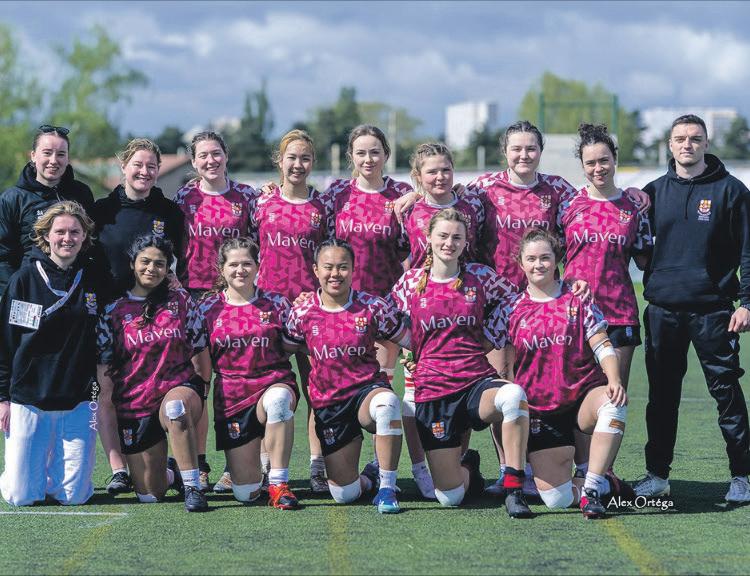































ACROSS
1. Director Erin got drunk and started with a knockout! Found on pg. 16 (6)
6. Washing up with gloves and bloomers (9)
9. Deirdre's opening followed a naked anus, how bare! (4)
10. Ban on pg. 9 resting place for small male (4)
12. Bear with unmentionnables! (5)
15. Spherical space for a boogie on pg. 14 (8)
17. End of an inker and cacao snack (3)
19. Lob expletive with no start, replaced with the










capital of Peru (4)



20. Sounds like an apology for Indian dress (4)
21. Identical pair of a thousand gay men (6)
22. Initially I only tasted apples for a bit (4)
25. Sense a gentle rugby game (5)
26. Slippy and oiled, no exponent in spot for a dip (4)
27. Nation's leader is mixed up with piousness for Bristol Bridge (10)
28. Material faceless fine about heartless loan (5)
DOWN
by Darcy Wood

Designed to look like normal sentences, cryptics have a secret meaning hidden inside.
The definition of the word will either be at the start or end of the clue. The rest is about wordplay. Take this example:
Short, witty piece about pig in flipping disaster
Definition: short, witty piece Wordplay: about pig in flipping disaster
Here, the wordplay tells us to "flip" or reverse a word for disaster and put "pig" in it. Another word for disaster is "mare", so putting pig inside mare reversed, "eram", gives us Epigram!
1. Skiing has no one or face for chess piece (4)
2. Some rode over for the Western showcase (5)
3. Gothic emotion with no tail (3)
4. Drunk choristers fright without one in shut down club (8,6)
5. Fire department hugs toilet in disaster! (5)
7. Toga mix up with LeBron James? (4)
8. Sounds like Santa's transport is serving (4)
11. For starters, can Russians actually boil a crustacean? (4)
13. Post triangle meal on
pg. 10 for a giver with no oxygen but lots of energy! (5)
14. On that note, put it straight on your skin (7)
16. Ms. hugs a handy fold out map model (4)
18. Openly unhindered mutilated without emergency room. As seen on pg. 15 (8)
21. Acid portion for Bristol mag (3)
23. The Italian follows the heart of the squad with a small bird (5)
24. Sounds like a drink to cry (5)
25. Singular grabber is Pete Wrong... that doesn't sound right! (4)
How it works: Every month we commission an original cartoon in need of a caption! Anyone can submit a caption for each month's contest - the wittier the better. Do you have what it takes?

Please submit your entries to design.epigram@gmail.com before the 20th of the month.

The lucky winner of this month’s Caption Contest will receive a 6-pack of beer and 2 Brewery Tour vouchers from Left Handed Giant!
Left Handed Giant are a Bristolbased brewing company, with six premises across the city. We make a variety of styles from our two brewery sites based in Bristol, one at our taproom in St Philips, and one at our brewpub in the heart of the city.

